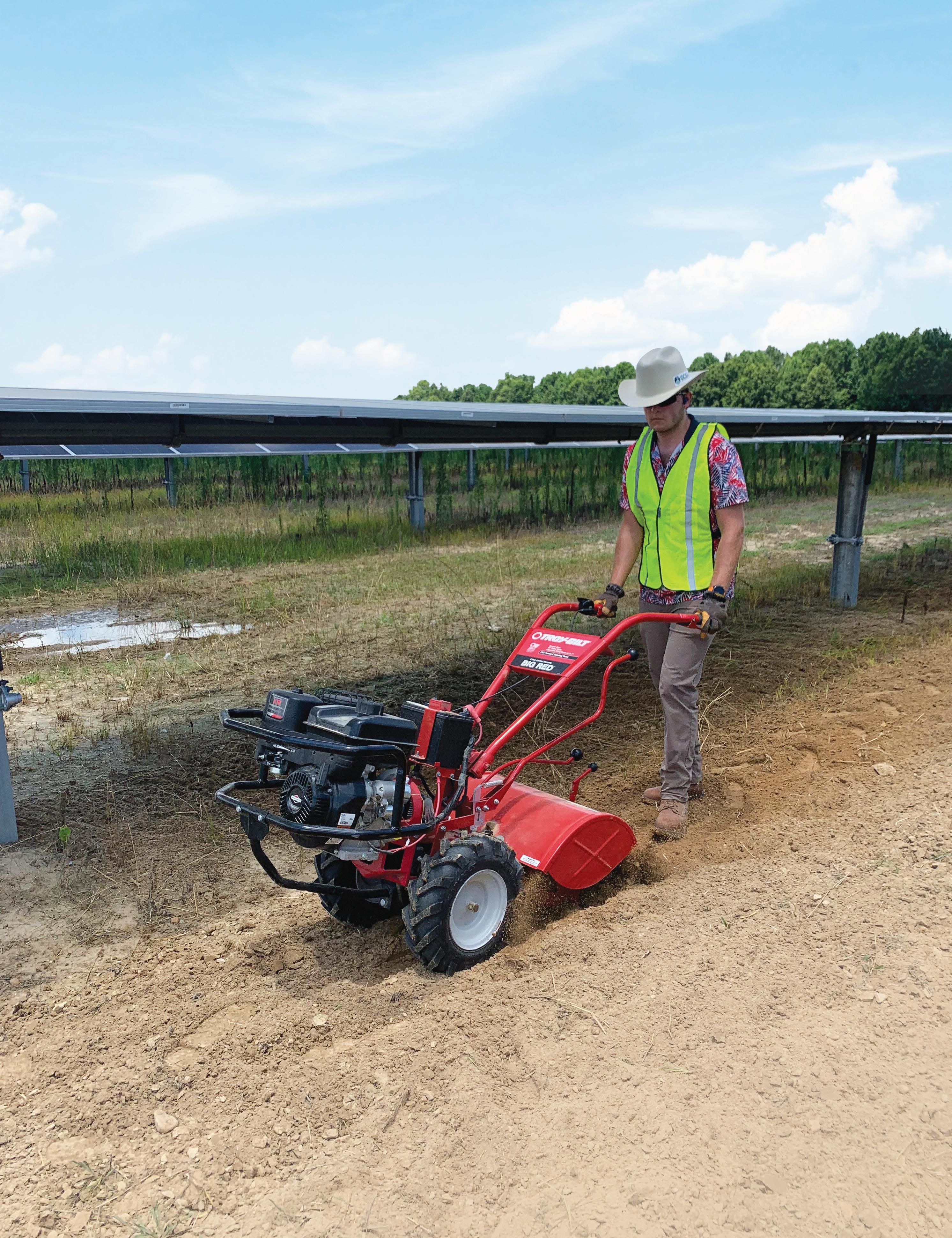
The Mississippi Turfgrass Association Magazine FALL 2023 PLUS SEARCHING FOR THE RIGHT GRASS on the Delta’s Edge Solar Farm Don’t Miss the 2023 DEEP SOUTH TURF EXPO
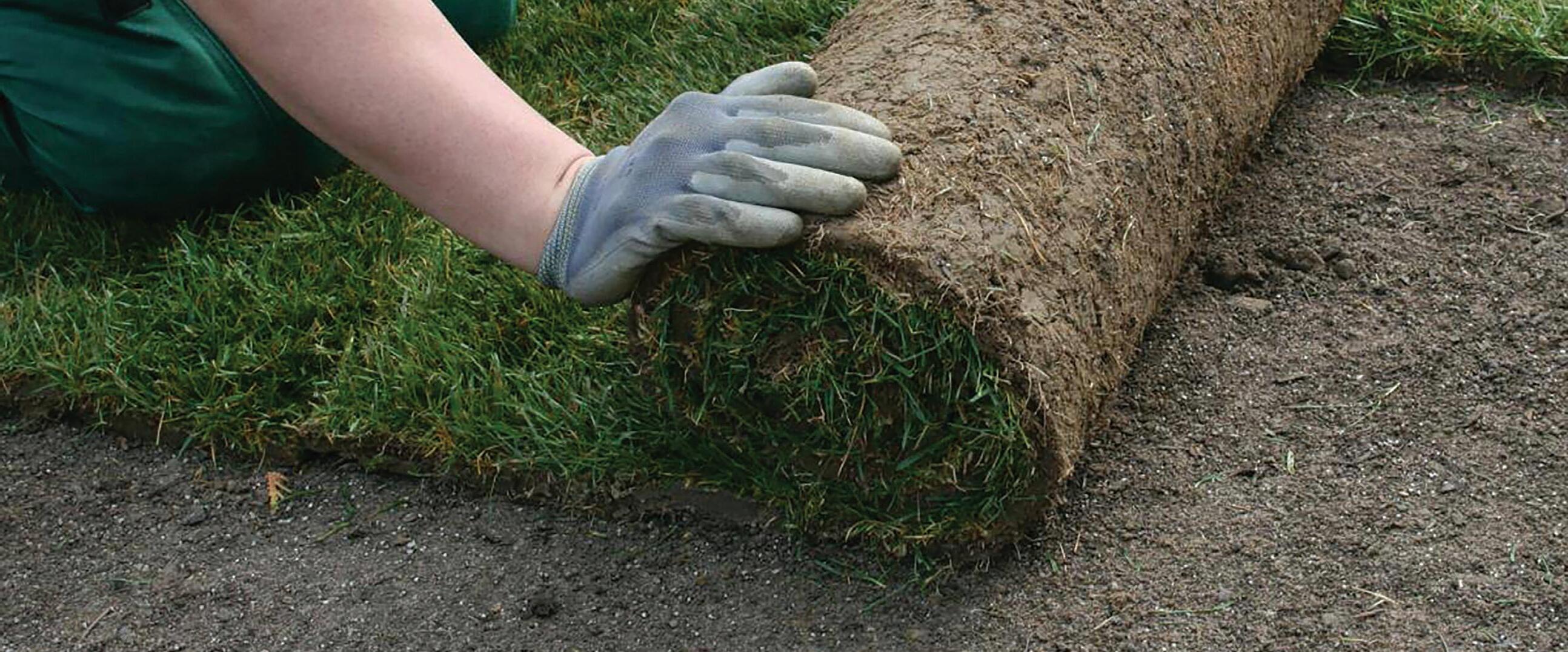

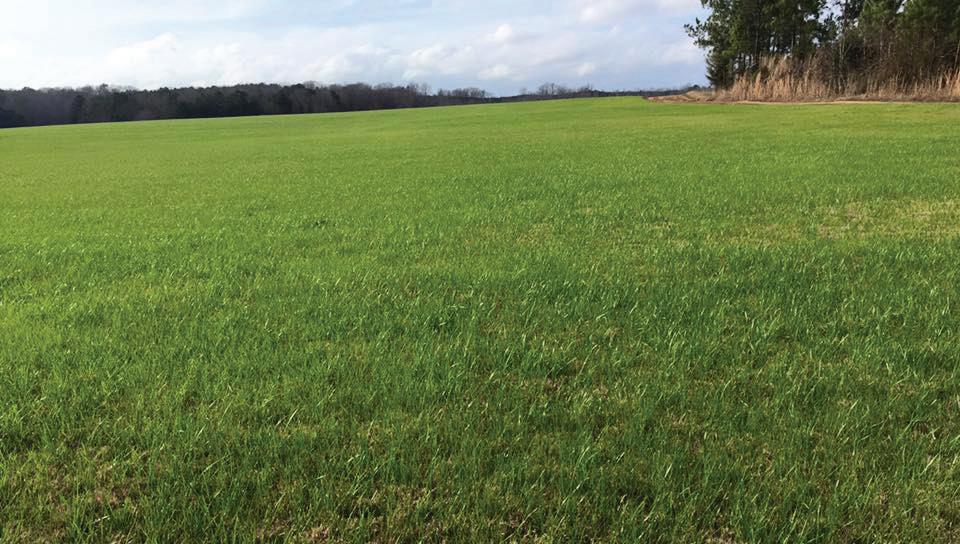
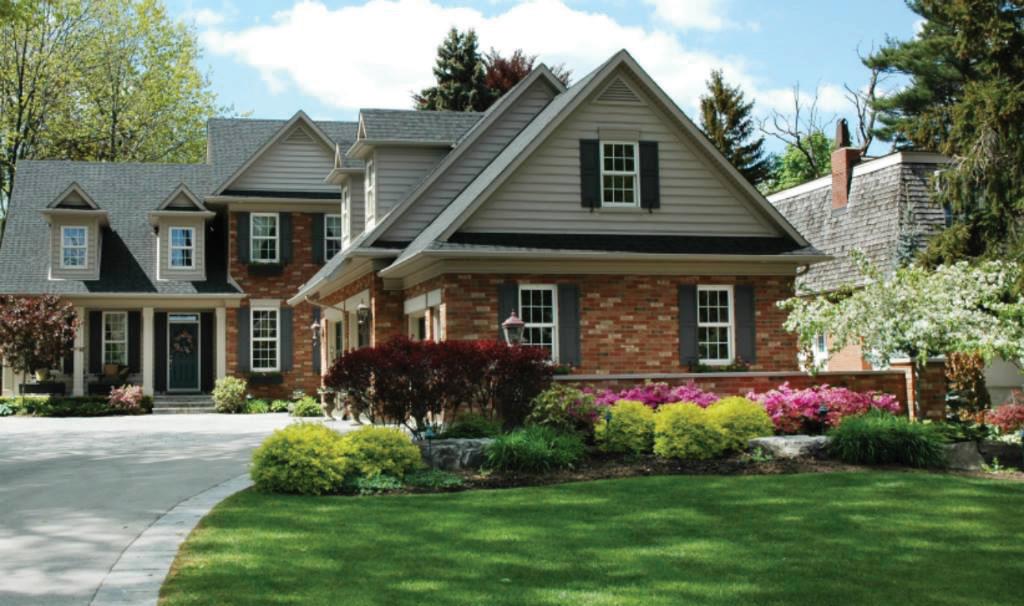
TOP QUALITY AT REASONABLE PRICES MORE THAN 25 YEARS IN BUSINESS | LIFELONG FARMING EXPERIENCE Cagle Sod Farm | 692 County Road 5111 | Booneville, MS 38829 Larry’s Cell: (662) 720-3867 | Office: (662) 365-3152 | larry@caglesod.com www. CAGLESOD .com We offer a variety of quality sods that include: Make your lawn look great with Cagle Sod Farm in Booneville, Mississippi. We have fresh sod for sale. With a lifelong farming experience, we take pride in facilitating sod deals for private customers to large corporate orders including golf courses, athletic fields, and expansive industrial sites.
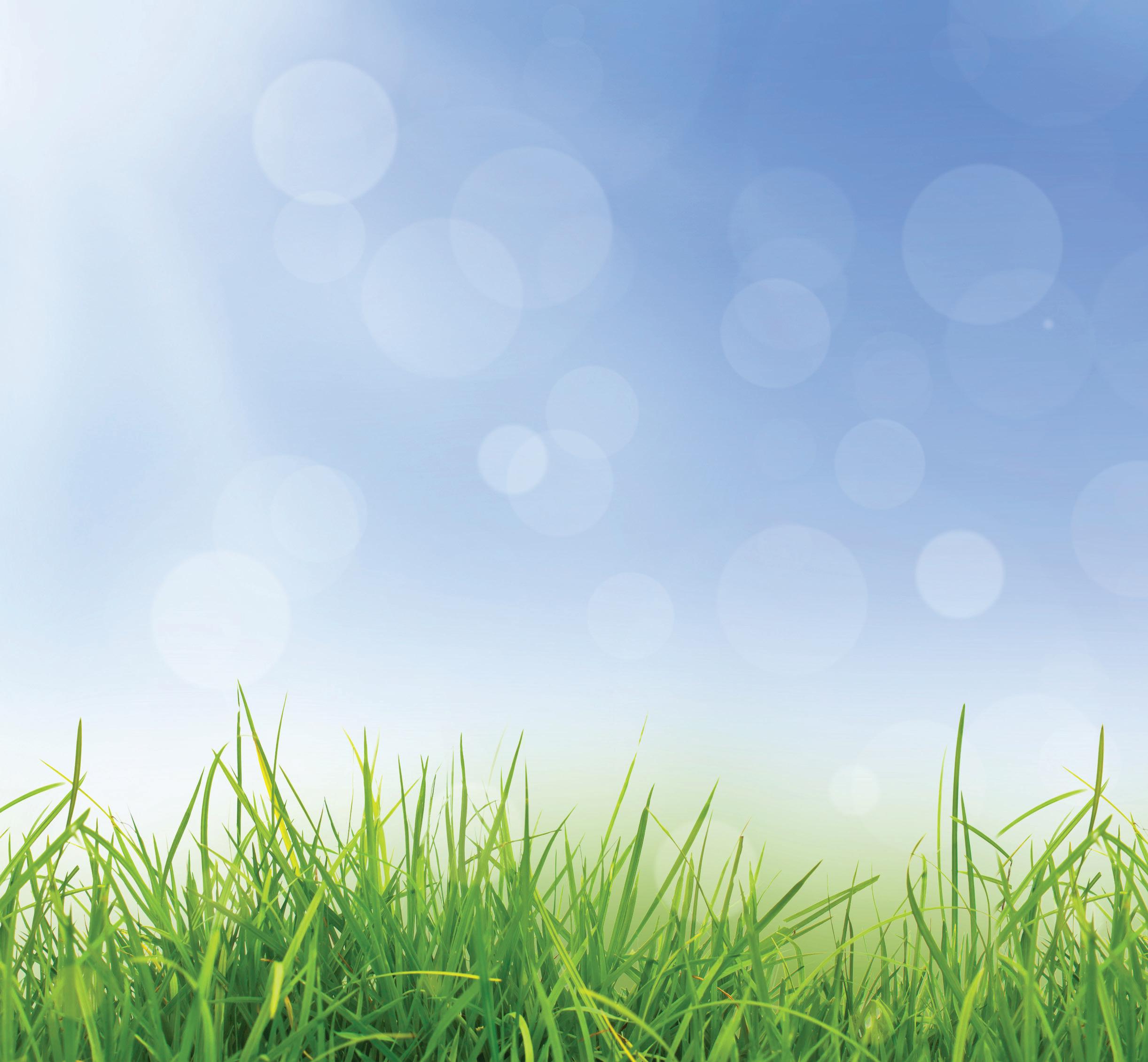
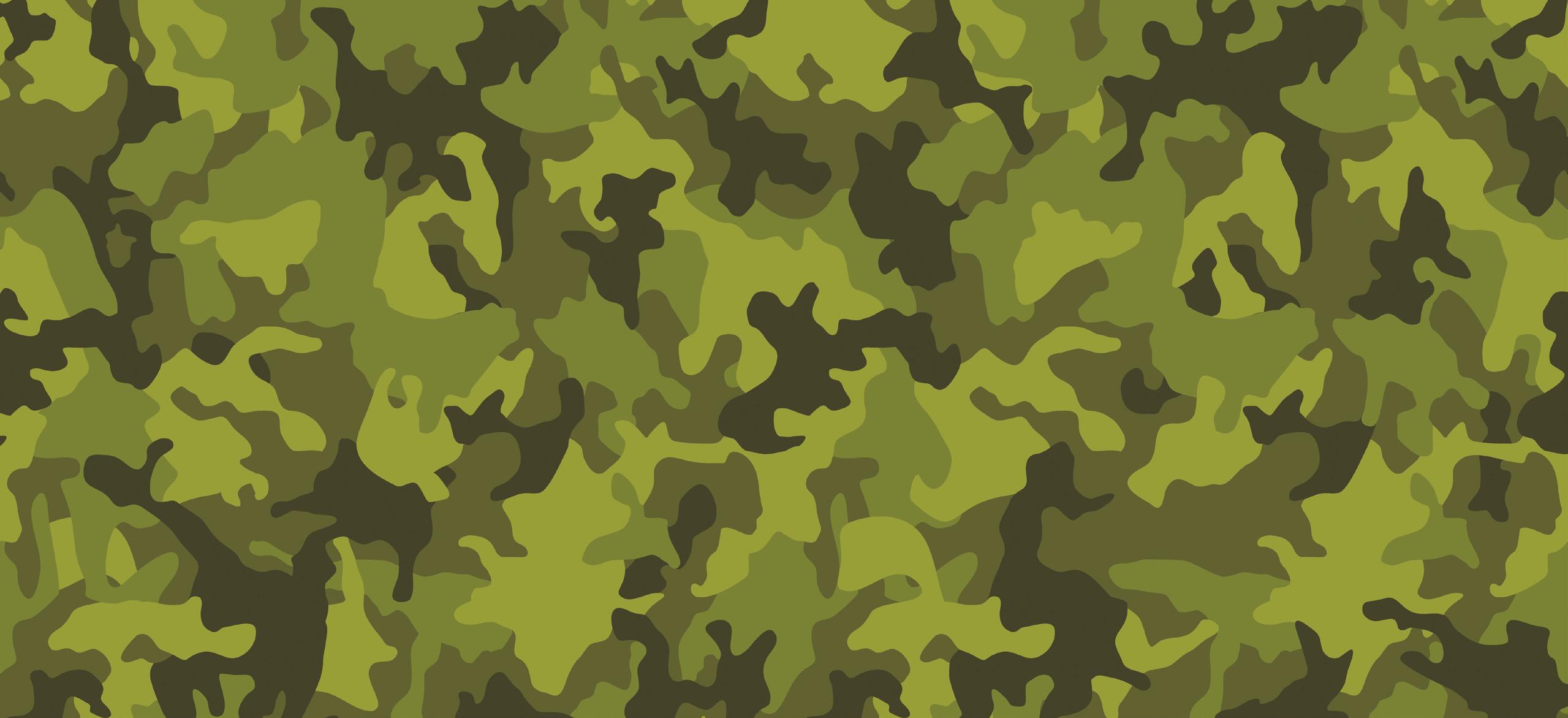
CONTENTS • The Mississippi Turfgrass Association Magazine

COVER STORY
9 Don’t Miss the 2023 Deep South Turf Expo
UPCOMING EVENT
18 MSU Turfgrass Research Field Day
FEATURES
22 Searching for the Right Grass on the Delta’s Edge Solar Farm
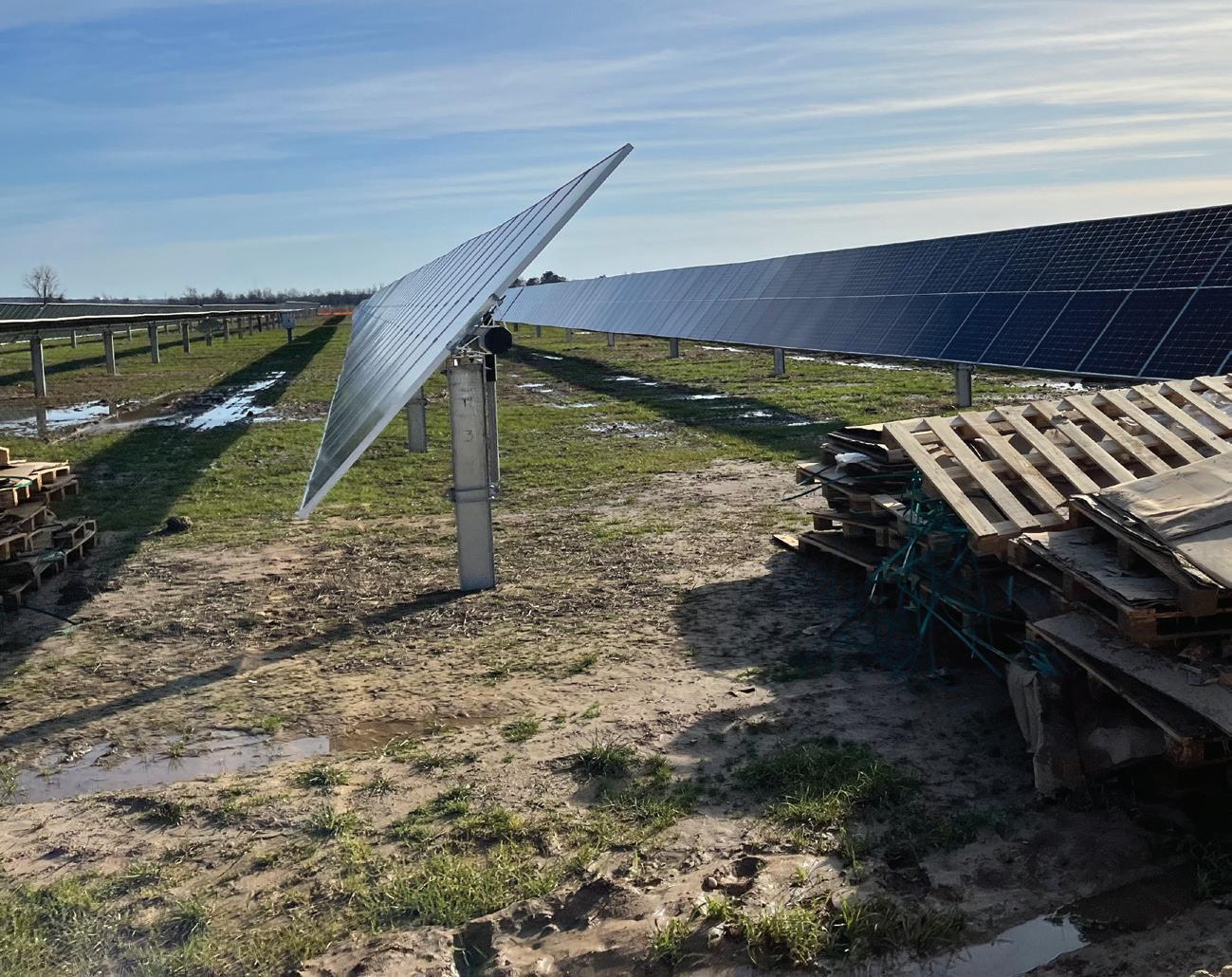
28 State of the Industry: A Perspective from Turfgrass Producers International
RECENT EVENT
32 Yard Dawg Classic
DEPARTMENTS
6 From the MTA President 15 Index of Advertisers
16 News from MTA 16 Calendar of Events
Find this issue, Podcasts, Events and More: THETURFZONE.COM
OCTOBER 16 – 19, 2023

MISSISSIPPI COAST CONVENTION CENTER – BILOXI, MS REGISTER ONLINE AT WWW. DEEPSOUTHTURFEXPO .ORG
Mississippi Turfgrass is the Mississippi Turfgrass Association magazine. Subscriptions are complimentary to MTA members. The statements and opinions expressed herein are those of the individual authors and do not necessarily represent the views of the association, its staff, its board of directors, Mississippi Turfgrass, or its editors. Likewise, the appearance of advertisers, or their identification as MTA members, does not constitute an endorsement of the products or services featured in any issue of Mississippi Turfgrass. Copyright © 2023 by the Mississippi Turfgrass Association. Mississippi Turfgrass is published quarterly. Subscriptions are complimentary to members of MTA. Presorted standard postage is paid at Jefferson City, MO. Printed in the U.S.A. Reprints and Submissions: MTA allows reprinting of material published here. Permission requests should be directed to MTA. We are not responsible for unsolicited freelance manuscripts and photographs. Contact the managing editor for contribution information. Advertising: For display and classified advertising rates and insertions, please contact Leading Edge Communications, LLC, 206 Bridge Street, Suite 200, Franklin, TN 37064, (615) 790-3718, Fax (615) 794-4524.
FALL 2023 22
4 • MISSISSIPPI TURFGRASS • FALL 2023
20 9
Designed specifically for sports turf and golf courses, the Trimax Snake combines world-class cutting and articulation technology to deliver a finish that rivals that of a reel mower –without the high cost of maintenance.
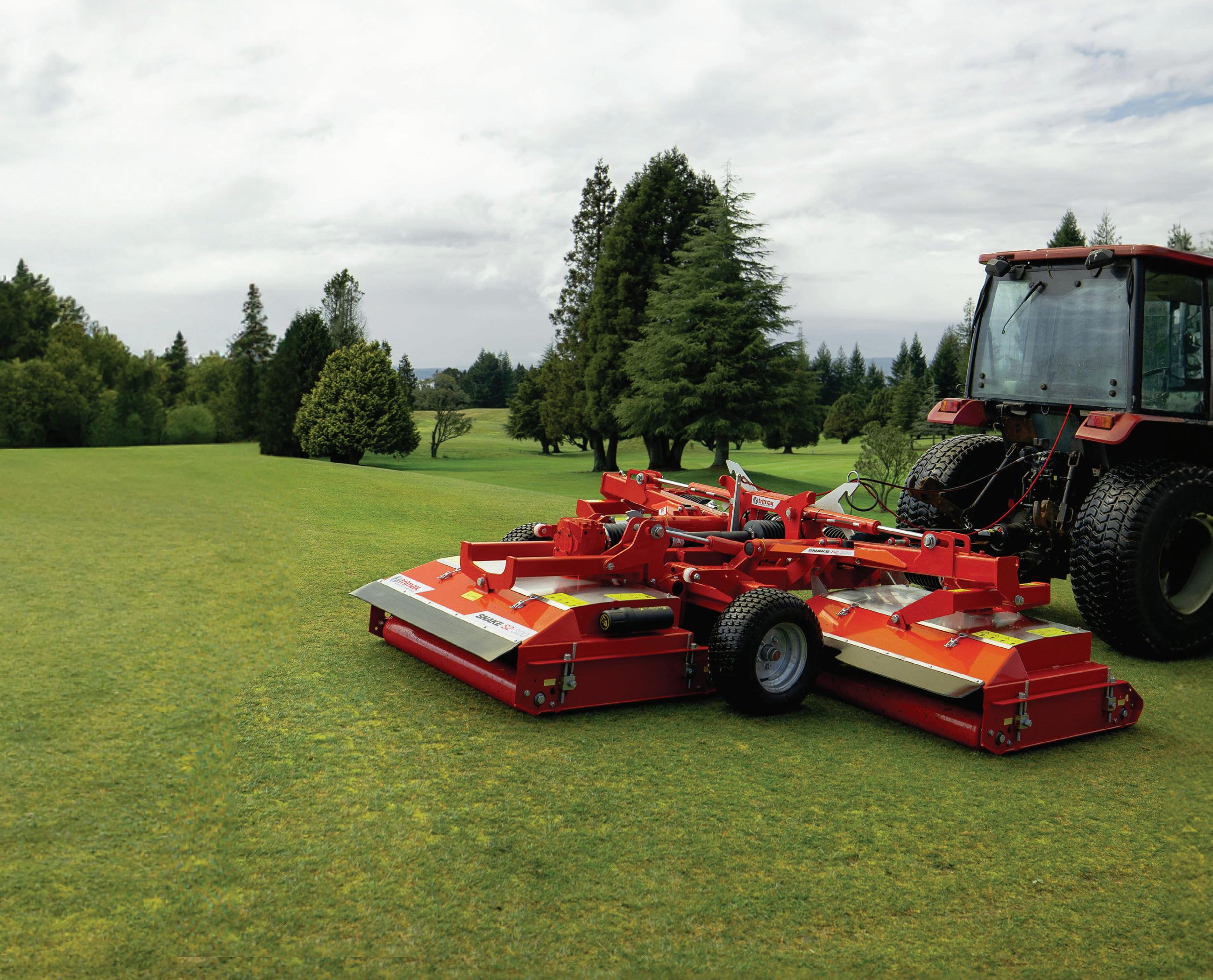
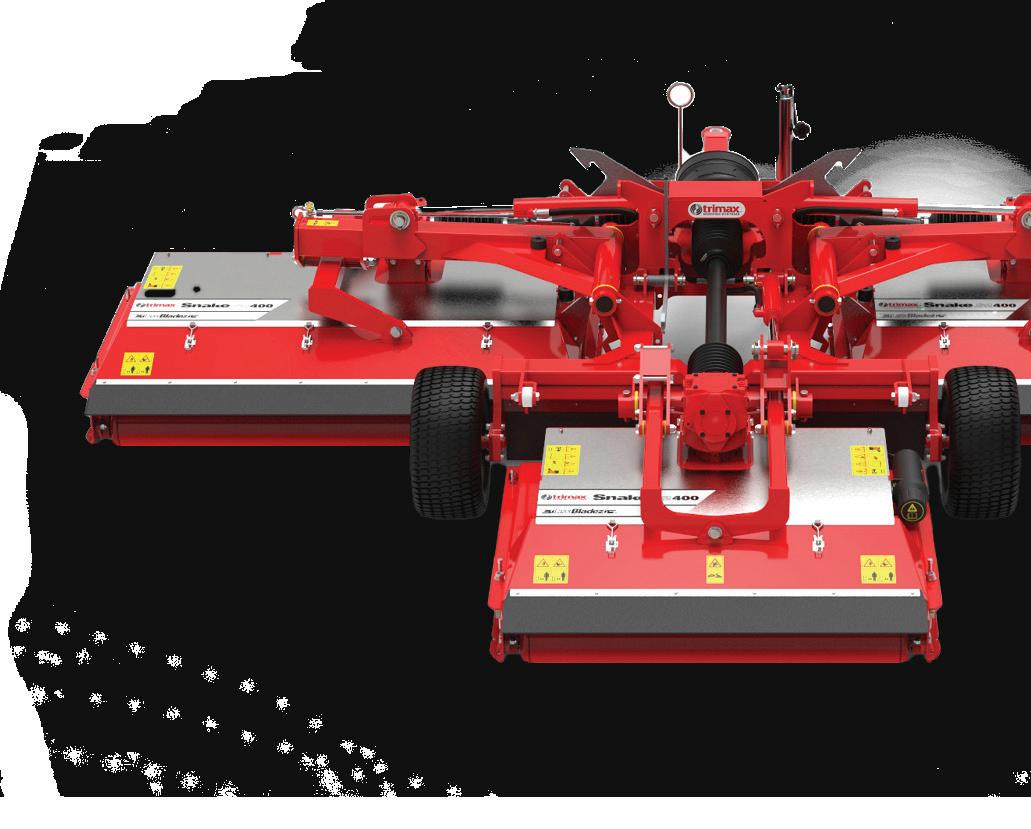
Featuring:
› Three articulating decks for advanced contour following without scalping
› Full-width rollers for seamless presentation and easy striping
› Trimax LazerBladez, a durable and cost-efficient fling-tip blade unique to Trimax.
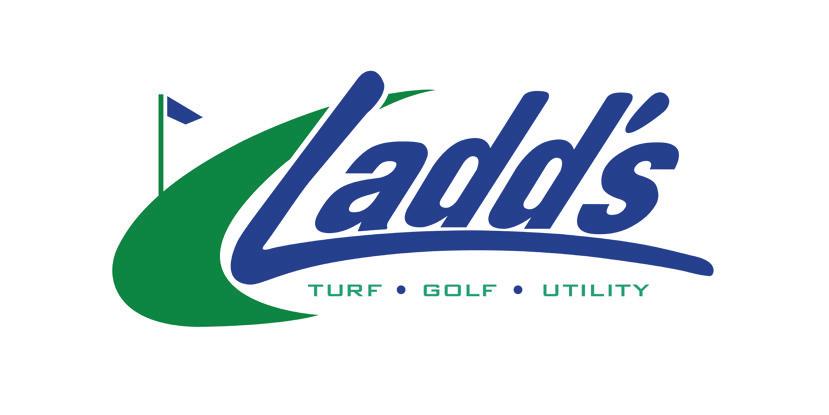
› Maintenance-free features: pivot bushes, spindles, automatic belt tensioning.
› Zero-turn capability for continuous cutting through sharp turns.
› Trimax QuikLift for quick and easy navigation over driveways, paths, and curbs.
ROUGHS AND FAIRWAYS.
PERFECT FOR
P +1 770 412 8402 // info@trimaxmowers.com 310 Etowah Trace, Fayetteville GA 30214, US
Scan here to learn more about the Trimax Snake S2!
For a free demo contact: CHAD GAMBLE / North MS cgamble@bobladd.com SCOOTER HUCKABEE / South MS shuckabee@bobladd.com P 800-843-1663 / ladds.net
YOU Make a Difference
There is not much better than sunrise on a golf course—a heavy dew and maybe some water running in the distance. It makes for an awesome setting! I hope you all have survived what I like to call the “100 Days of Hell” from Memorial Day to mid-September and football season. Even though we still see some brutal daytime temps, the nights tend to cool, and football in the air means fall is near. What a blessing for those of us in the green industry to experience nature at its best, and even its worst!!
That blessing leads me to this thought. Many of us are uniquely positioned as stewards of the environment and managers of people (many of them young and impressionable). That leads us to the opportunity to be difference makers and disciples in many a life, from human to animal to plant. What a position we hold in the golfing/ green kingdom. I love the teaching moments the summer offers and the opportunities that exist to shape the minds of the next generation. I often find myself telling our staff that I know well the question, “why did he hire this person sitting next to me, all they can do is fill divots and empty trash, and that takes them half a day?” Truthfully, there are occasionally people we struggle to lead, but I also try to remember that many people benefit from our outdoor “sanctuary,” as well as our job’s discipline and structure, and of course our care as leaders. It really is much bigger than grass, and grass often grows fairly well without our help. It is the lives we touch that make this profession even more joyful, and occasionally stressful! So, take pride in what you do and provide! You make a difference.
As we head into our fall events, I again want to say way to show up and show out at our 21st annual Yard Dawg Classic. Thanks to you all! It is always fun to be back home at the MSU Course. So, thanks to everyone involved, and we look forward to needing more golf carts for the 22nd annual in 2024. Now, let’s carry that same energy and passion for the industry to the upcoming events listed below:
Published by: Leading Edge Communications, LLC 206 Bridge Street Franklin, TN 37064
Office: (615) 790-3718
Fax: (615) 794-4524
info@leadingedgecommunications.com
MISSISSIPPI TURFGRASS EDITOR Dr. Jay McCurdy
MTA OFFICERS
PRESIDENT Will Arnett EMCC – Lion Hills (662) 418-1939
VICE-PRESIDENT / PRESIDENT ELECT Levi Jumper Tupelo National Golf Club (662) 213-6804

SECRETARY-TREASURER Dr. Barry Stewart Mississippi State University Office: (662) 325-2725
IMMEDIATE
ADMINISTRATIVE
I hope you find ample time to decompress and enjoy the fall. Please feel free to reach out to any board member or myself with comments, questions, or concerns.
Will Arnett
EMCC’s Lion Hills Golf Course
DIRECTORS
Chris Hussey / Sod Hussey Sod Farm (662) 231-3203
Scott Hampton / Golf Greenwood Country Club (601) 467-2718
Todd McCullough / Grounds / Lawn Maintenance (601) 416-3292
Evan Berry / Central Mississippi Braves (228) 304-1234
Elvin Ulmer / South City of Laurel (601) 319-6170
Seth King / Industry Ben Nelson Golf and Outdoor (601) 672-4796
EX-OFFICIO Dr. Jay McCurdy / Faculty Advisor Mississippi State University (662) 325-2331
6 • MISSISSIPPI TURFGRASS • FALL 2023 FROM THE MTA PRESIDENT
Mississippi Turfgrass Association Box 9555 MS State, MS 39762
Office: (662) 325-0517
Fax: (662) 325-2705 www.msturfassociation.org
PAST
PRESIDENT Allan Sullivan Grand Bear Golf Course (228) 860-8740
SECRETARY Linda Wells Mississippi State University Box 9555 MS State. MS 39762 Office: (662) 325-0517 Cell: (662) 769-7558 lmw218@pss.msstate.edu
DEEP SOUTH TURF EXPO October 16 – 19, Biloxi Register online at www.DeepSouthTurfExpo.org MSU TURFGRASS RESEARCH FIELD DAY September 21, Starkville Register online at www.pss.msstate.edu/workshops/turf
Winter Liquid Overseed Program
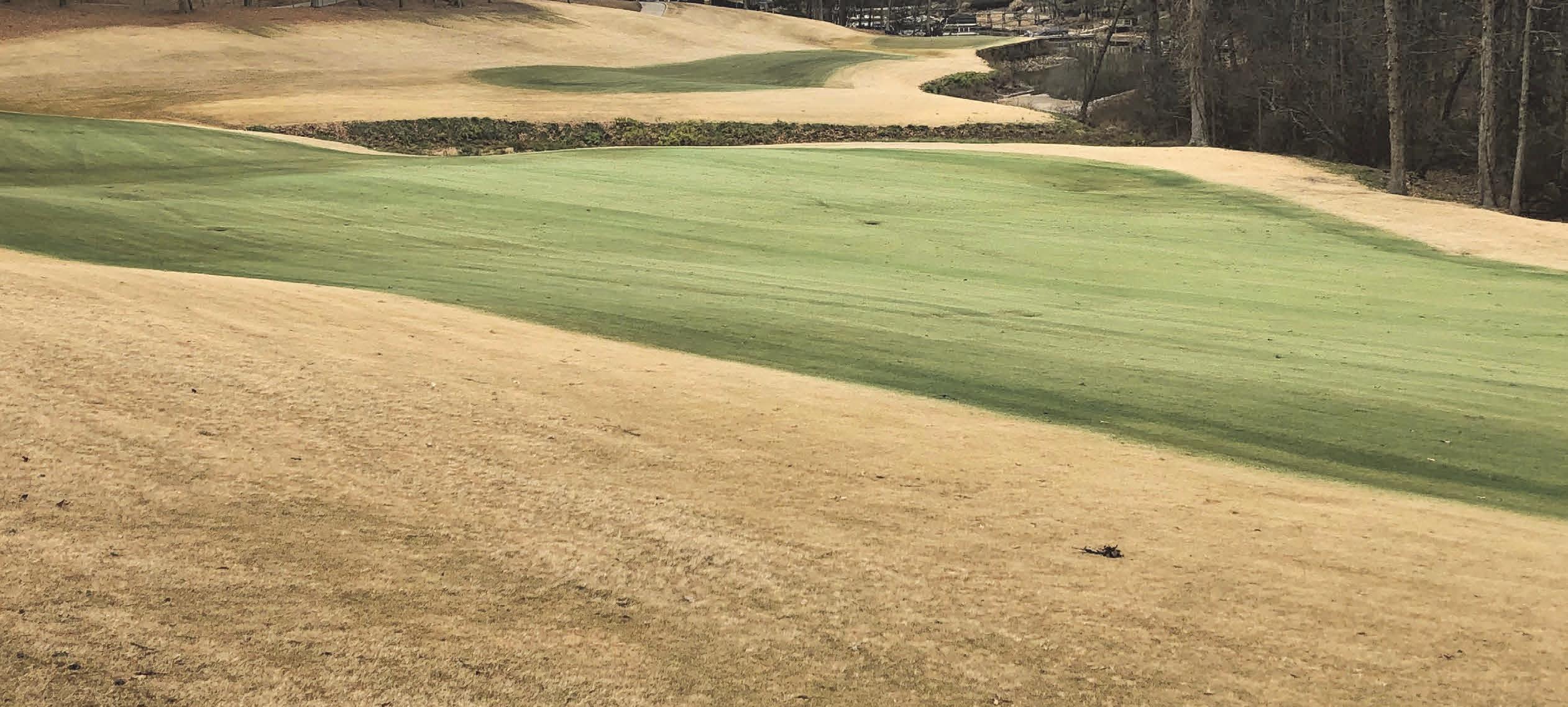
Complete Solution for Dormant Turfgrass
A highly effective dark green pigment concentrate designed to enhance turf color
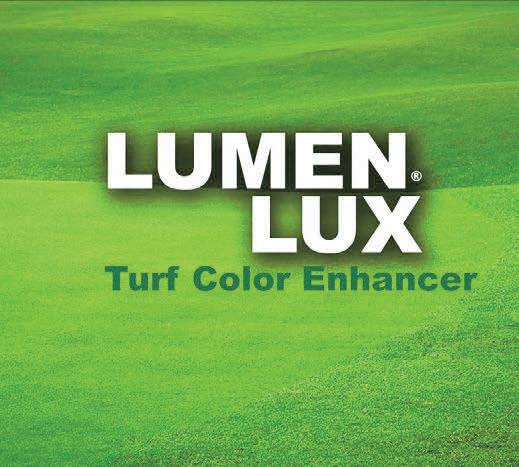
Purest form of ferrous sulfate heptahydrate for rapid and deep greening without the need for anti-caking agents
Long term color enrichment of warm season turfgrasses during periods of dormancy
Winter Color Program
Fall Monthly (3 applications before first freeze event)
AMBIENT™ PLUS 16 oz/acre
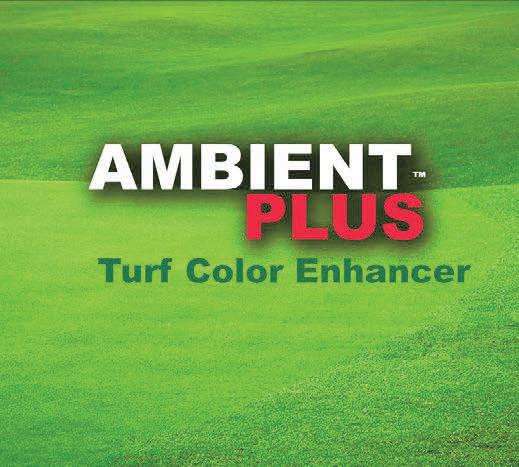
(0.4 fl. oz. per 1,000 ft2)
Following first hard freeze event +
EXTREME GREEN® 10 lbs./acre (4 oz. per 1,000 ft2)

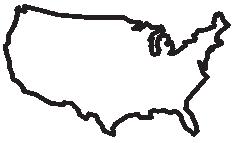
LUMEN® LUX
3 gal/acre
(9 oz. per 1,000 ft2)
Scott Newman | cell: (901) 201-0320
scott.newman@simplot.com
Walker Sory | cell: (504) 206-5114
walker.sory@simplot.com
Randy Owens | cell: (205) 517-1772 randy.owens@simplot.com

2022 Simplot AB Retail, Inc. All rights reserved. The foregoing trademarks are owned by the J.R. Simplot Company used under license. Read and follow label directions. Confirm registration before use.
TURF & HORTICULTURE Learn more at TH.Simplot.com @SimplotTurf
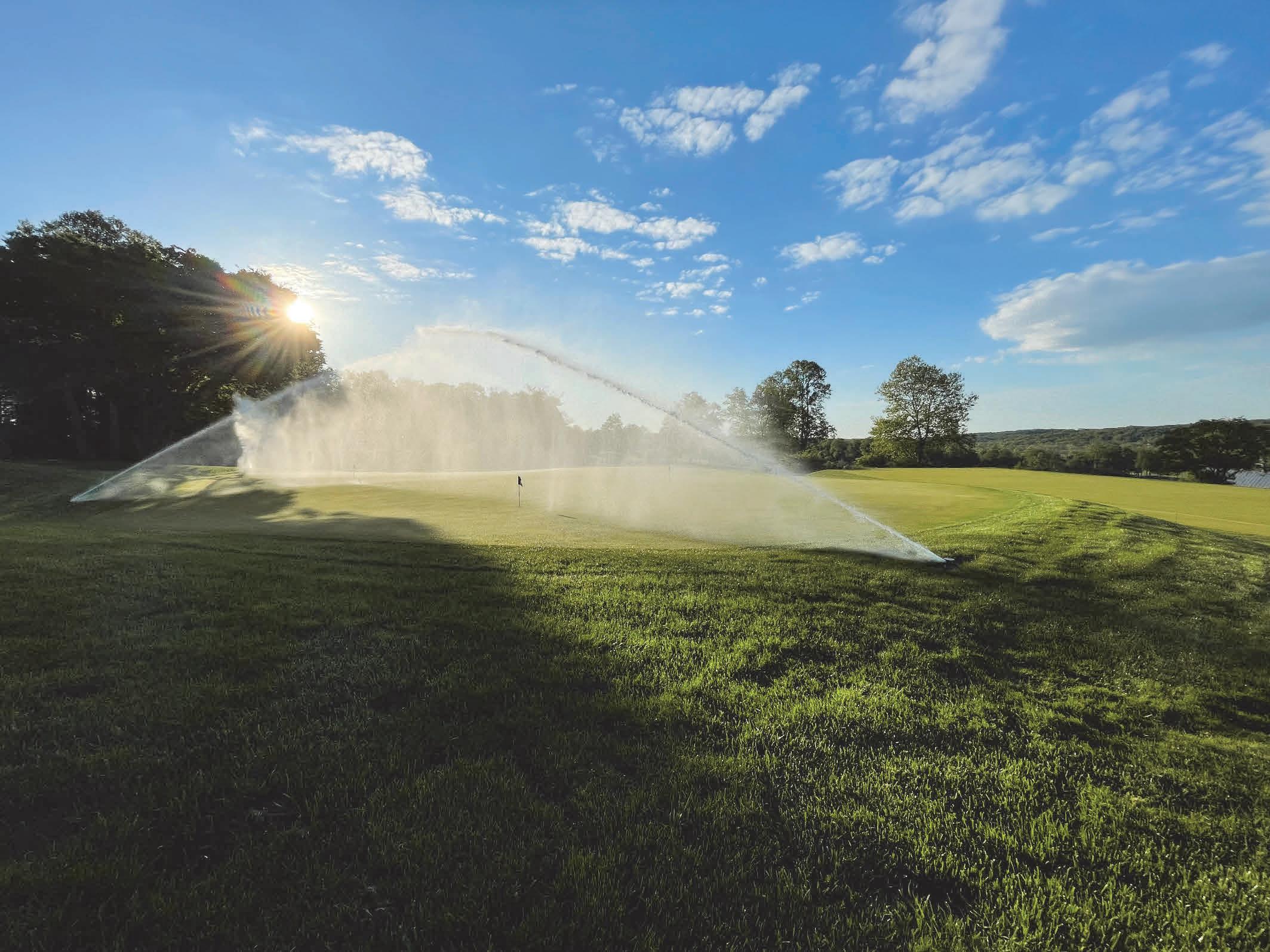














































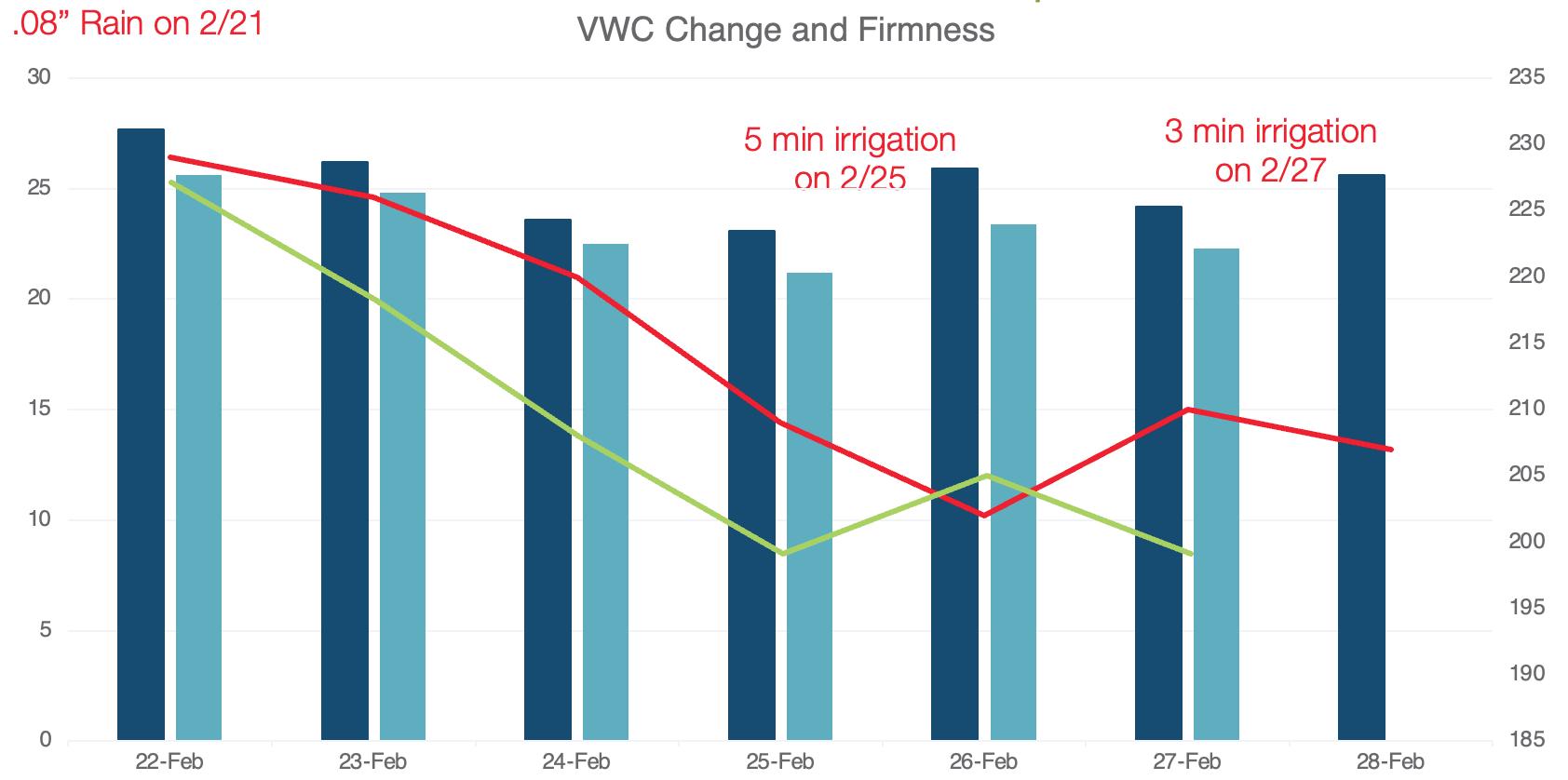
MONDAY, OCTOBER 16
OCTOBER 16 – 19, 2023
MISSISSIPPI COAST CONVENTION CENTER – BILOXI, MS
REGISTER ONLINE AT WWW. DEEPSOUTHTURFEXPO .ORG
TUESDAY, OCTOBER 17
WEDNESDAY, OCTOBER 18
GENERAL SESSION
How has the Resist Poa project improved Poa annua control and management? • Becky Grubbs Bowling, Ph.D., University of Tennessee
In 2018, a team of 16 university scientists spanning 15 institutions embarked on a $5.6 million project (‘ResistPoa’) to limit the impact of annual bluegrass (Poa annua L.) in athletic, golf, lawn, and sod farm turf. The team’s multifaceted approach, funded by USDA-NIFA Specialty Crops Research Initiative (SCRI), had several objectives including characterizing the nationwide distribution of herbicide-resistant P. annua populations, identifying potential weaknesses in the weed’s biology and growth characteristics in order develop non-chemical control strategies, identifying socio-economic constraints that may affect control strategies and stewardship of herbicide technologies, and developing and delivering best management practices (BMPs). This talk will provide an overview of key project findings and implications for the industry and future research.
The Future of Drones and Precision Application Technology for Pest Management • David McCall, Ph.D., Virginia Tech University
9 am
Rapidly evolving technologies are changing the ways we manage turfgrass systems. The incorporation of GPS technologies into sprayers improves application accuracy, which reduces overspray and misses, chemical inputs, and associated costs of each application. Drones can be used to map and predict pests and other stressors across turfgrass systems, and even for making targeted spray applications in hard-to-reach areas. The audience will learn ways to use GPS technology and drones for targeted pest management.
Contemporary issues around pesticide use • Travis Gannon, Ph.D., North Carolina State University
10 am
Herbicides are commonly and effectively used to manage weeds in various agronomic systems including turfgrass systems. However, devising and implementing comprehensive weed management programs is an intricate process. It is complicated by many agronomic and other issues. This seminar will highlight many of the contemporary issues around pesticide use in turfgrass systems today, including what’s involved in pesticide registration, off-target movement, and resistance.
11 am – 5 pm Tradeshow Grand Opening
11:30 am Lunch
Annual Business Meetings
12 pm Alabama Turfgrass Research Foundation
12 pm – 3 pm
1 pm Alabama Turfgrass Association & Mississippi Turfgrass Association
2 pm Louisiana-Mississippi GCSA
3 pm – 5 pm General Session: Panel Discussions
3 pm
4 pm

Mississippi Coast Convention Center
Mississippi Coast Convention Center – Tradeshow Floor
Mississippi Coast Convention Center
Mississippi Coast Convention Center – Tradeshow Floor
TRADESHOW
Robotic and drone technology for turfgrass and landscape management
TALKS
• Bryan Unruh, Ph.D, Amy Wilber, David McCall, Ph.D.
Robotic and drone technology is rapidly evolving and its use in turfgrass and landscape management is increasing. A panel discussion will focus on how this technology can be adopted and will include the pros and cons of using it in the turfgrass and landscape management industry.
The reality of synthetic turf adoption and the limitations of natural surface fields
• Barry Stewart, Ph.D, Scott McElroy, Ph.D., Mark Langner, David Han, Ph.D. Sooner or later a sports administrator is faced with a decision on the type of surface to be used at a new or renovated field. Synthetic surfaces are sold as being a panacea of unlimited use with minimal maintenance. This is not the case, and more maintenance is required on synthetic surfaces and use must be limited or the field will fail. It is accepted that natural grass surfaces will require use limitations and vigorous maintenance to maintain a quality playing surface. This discussion will cover the pitfalls that come with synthetic grass surfaces and provide insights into the limitations of natural grass surfaces.
5 pm Alabama Pesticide Sign-Out
5 – 6 pm Tradeshow Closing & Exhibitor Move Out
6 – 8 pm
DSTE Softball Game Gulfport Sports Complex Dinner on your own
12 pm DSTE Board Meeting Mississippi Coast Convention Center 4 pm – 6 pm Large Equipment Move-In Mississippi Coast Convention Center 7 pm DSTE Board Dinner Beau Rivage
8 am – 4 pm Registration Open & Exhibitor Move-In Mississippi Coast Convention Center 9 am – 3:30 pm Alabama Ornamental & Turf Exam Review Mississippi Coast Convention Center 11 am Scramble Golf Tournament The Preserve Golf Club 5 pm Tailgate Celebration • All attendees & exhibitors welcome! The Preserve Golf Club
7 am – 4 pm Registration Open Mississippi Coast Convention Center 7 am Continental Breakfast Mississippi Coast Convention Center 8 am – 11 am General Session: Keynote Speakers Mississippi Coast Convention Center
am
8
COVER STORY THE MISSISSIPPI TURFGRASS ASSOCIATION MAGAZINE • 9
THURSDAY, OCTOBER 19
7 am Continental Breakfast
8 am – 12 pm Breakout Sessions
Golf Sessions
Maximizing Spring Dead Spot Management
David McCall, Ph.D., Virginia Tech University
Sports Turf & Grounds Sessions
Annual Bluegrass Control – What Have We Learned?
Lawn Care & Landscape Sessions
Landscape Fertilization Practices: Are We Missing the Mark?
Mississippi Coast Convention Center
Mississippi Coast Convention Center
Sod Production Sessions
8 am

Spring dead spot is among the most challenging diseases to manage on hybrid bermudagrasses that experience winter dormancy. Strategies for managing range from preventative suppression to recovery strategies, often with no one strategies being sufficient. This presentation outlines strategies to manage the disease and predict where outbreaks are most likely to occur.
Jay McCurdy, Ph.D., Mississippi State University and Scott McElroy, Ph.D., Auburn University
Our experts will share results of the USDA-NIFA Specialty Crops Research Initiative being conducted by a national team of scientists. The “ResistPoa” project has set ambitious goals to characterize the nationwide distribution of herbicide-resistant annual bluegrass populations.
Annual bluegrass is not solely controlled with synthetic pesticides. Scientists are using the weed’s natural biology and growth characteristics to develop non-chemical control strategies. Those strategies include clipping removal during seed production, fraze-mowing, and alternative pesticides.
Bermudagrass Putting Greens: a Closer Look at Aerification Practices
Marco Schiavon, Ph.D., University of Florida
Optimizing Landscape Resilience for Weather Extremes
Becky Grubbs Bowling, Ph.D., University of Tennessee
Bryan Unruh, Ph.D., University of Florida
The landscape industry is driven by routine applications of inputs including water, nutrients, and pesticides. However, these inputs may or may not be necessary and may negatively impact the environment. A review of landscape fertility practices will be provided along with an overview recommended changes in fertility practices.
Prepare to Answer: A Comprehensive List of Arguments Against Synthetic Turf
Barry Stewart, Ph.D., Mississippi State University
This talk will arm sod producers with information to use when talking with stakeholders in the synthetic plastic grass turf vs natural grass turf debate. Maintenance, water, surface heat, injuries, heavy metals, micro-plastics, will be addressed.
Doveweed, Torpedograss, and Other Growing Weed Problems
Scott McElroy, Ph.D., Auburn University
Changes in Bermudagrass Cultivar Selection for Sports Turf Management
David Han, Ph.D., Auburn University
9 am
Aerification may be the most important cultural practice for a golf green other than mowing, and it is used to ameliorate soil physical properties (e.g., air and water infiltration), manage thatch layer, relieve soil compaction, and overall improve long term turfgrass health. The presentation will cover different methods to aerify bermudagrass greens and their effect on turfgrass quality and soil characteristics.
It is more important than ever that landscapes are designed and maintained to withstand extreme heat, cold, drought, and rainfall events. To achieve this, practitioners must have the resources needed to make and justify informed decisions related to plant selection, site preparation, and management. Turfgrass is a major component of these greenspaces, capable of offering numerous social, environmental, and economic benefits when managed appropriately. This talk will explore key considerations for plant and turfgrass selection, the importance of appropriate soil preparation, and other best practices to encourage more resilient turfgrass capable of performing well under growing social and environmental pressure.
Water Budgeting and Drought Contingency Plans
Becky Grubbs Bowling, Ph.D., University of Tennessee
Torpedograss and doveweed have traditionally been coastal weeds, however in the past 20 years they have spread north into different turf environments, requiring updated management conditions. In this seminar, we will discuss these weeds and others that have increased as turf problems, as well as the management practices that can be used to control them.
Is the reign of Tifway finally over for Southern bermudagrass sports fields? The answer is, “it depends.” While new bermudagrasses offering a variety of improvements have become the norm at the pro and college levels over the past decade, many schools and parks still use good old “Tifway.” What is holding back wider adoption of new bermudagrasses, and what is the future of bermudagrasses for the masses?
10 am
Drought, whether short-term or long-term, is inevitable for most turfgrass systems. Good preparation is key. In this talk, we will explore the importance of developing a water budget to understand course water use patterns and watering requirements. We will then leverage this knowledge and other critical resources toward the development of thoughtful plan of action for those times when drought (and associated watering restrictions) may hit.
Optimizing Herbicide Applications on the Golf Course
Travis Gannon, Ph.D., North Carolina State University
The Uncommon Diseases You May be Overlooking
David McCall, Ph.D., Virginia Tech University
Despite the introduction of new, highly effective fungicides into the turfgrass industry, adequate disease management can still be challenging. While we have a grasp on managing many common diseases, there are a number of hidden pest stressors that are difficult to diagnose and complicate providing ideal playing surfaces. This presentation will provide an overview of some of the less common diseases and disorders that frustrate turfgrass professionals with solutions to increase management success.
Managing Bermudagrass
Areas When Irrigating with Reclaimed Water
Marco Schiavon, Ph.D., University of Florida
Getting the Most Out of Preemergence Herbicides
Travis Gannon, Ph.D., North Carolina State University
Pre-emergence herbicides are commonly used to manage weeds in established turfgrass systems. While pre-emergence herbicides are one component of comprehensive weed control management programs, it’s imperative that turf managers understand various factors that influence pre herbicide efficacy. Product selection, application rates, and application timings, among other factors, will be discussed. Participants will have a better understanding of pre-emergence herbicide efficacy and will be able to devise more comprehensive weed management programs.
Soil Surfactants –What, Where, When?
Barry Stewart, Ph.D., Mississippi State University
New Cultivars are Making an Impact
Bryan Unruh, Ph.D., University of Florida
A number of new turfgrass cultivars are entering the marketplace. The merits and anticipated availability of the new grasses will be discussed.
11 am
Herbicides are commonly used to manage weeds on golf courses. While herbicides are one component of comprehensive weed management programs, it’s imperative for land managers to understand how to optimize herbicides without adversely affecting human or environmental health. Understanding biological and chemical attributes of herbicides and how they behave after application allows superintendents to optimize weed control while minimizing off-target movement and injury. Seminar discussions will focus on specific examples of off-target injury and failed herbicide applications. Overall, participants will have a better understanding of herbicide fate and behavior and will be able to devise best management practices to minimize offtarget herbicide injury and maximize efficacy.
Irrigation is the single most important maintenance practice to keep turfgrass alive. However, with water restrictions being progressively enforced and rising water costs, sufficient irrigation may not be available during the growing season. The presentation will discuss use of alternatives to potable water irrigation on bermudagrass fairways and will cover the challenges and advantages of using reclaimed water for turfgrass irrigation.
Soil surfactants are regularly used in golf and athletic fields to improve the uniformity of turf. Soil surfactants could do the same in lawn turf. What are soil surfactants? How and why should they be used? Where and when should they be used? This talk will provide insights into the use of soil surfactants in the home lawn setting.
Linking Diversified Lawn Care and Sod Production – Is There a Market?
Jay McCurdy, Ph.D., Mississippi State University
There is plenty of interest in biodiverse turfforb ground covers, but practical establishment techniques are scarce. For instance, seeded establishment of many native forbs is hindered by the availability of germinable seed, and even more troubling is that there has been very little work evaluating forbs for persistence and ecosystem services in maintained turfgrass. This presentation cannot solve all these problems, but it is the start of a conversation regarding how sod producers may enhance their product for certain market scenarios. Dr. McCurdy will discuss the rationale for biodiverse turf-forb lawns, the potential markets for product, and some of the challenges (and potential solutions) for production.
12 pm CEU & Pesticide Sign-ins and Expo Adjournment 10 • MISSISSIPPI TURFGRASS • FALL 2023
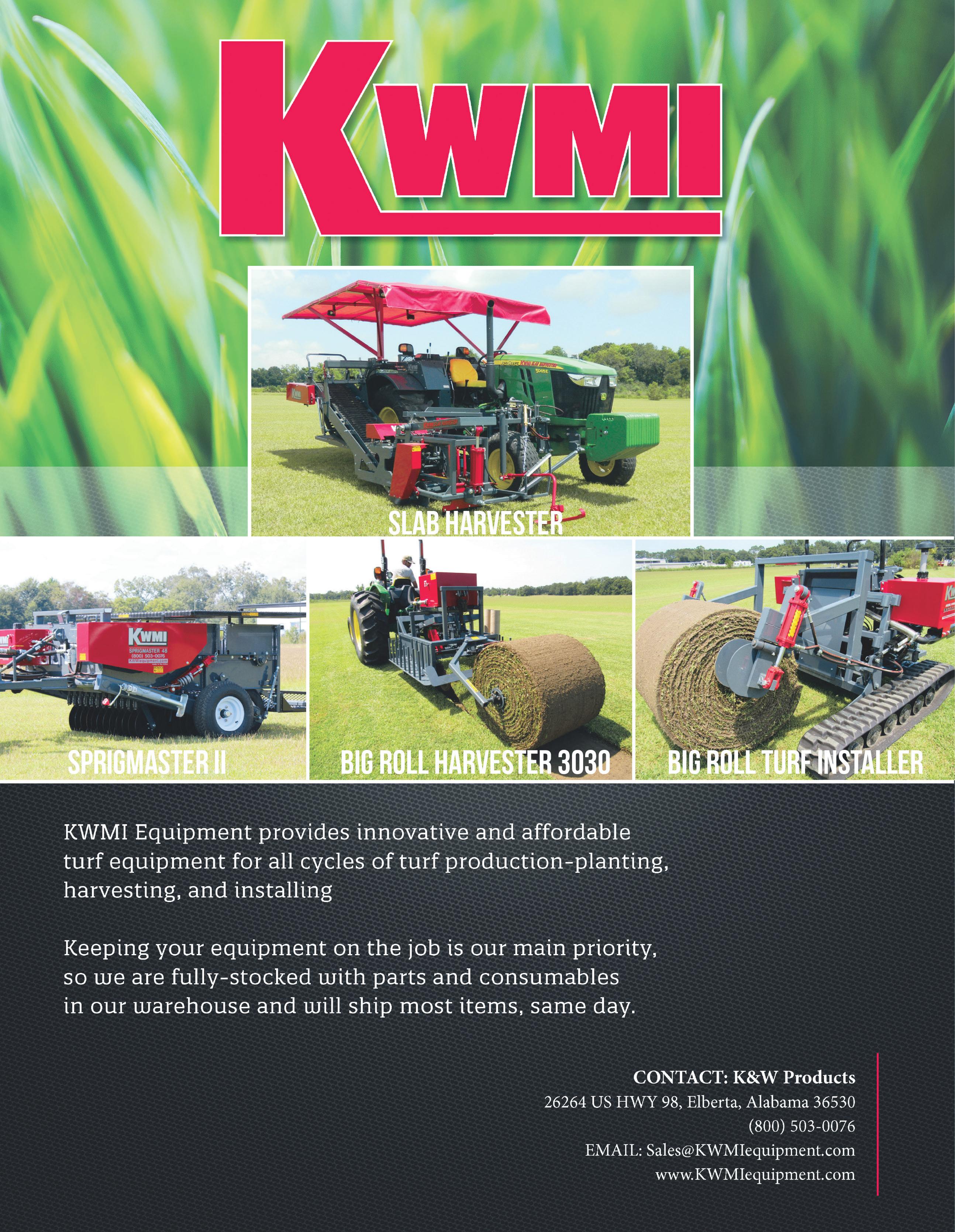
YOUR 2023 CONFERENCE SPEAKERS
Becky Grubbs Bowling, Ph.D.
Dr. Becky Grubbs Bowling is an Assistant Professor and Extension Specialist with the University of Tennessee Institute of Agriculture (UTIA) specializing in Turfgrass Science and Management. She completed her B.S. and M.S. in Horticulture at Texas Tech University in 2010 and 2013 respectively before completing her PhD in Crop and Soil Sciences at the University of Georgia in 2017. Bowling works in partnership with other faculty/scientists, professional organizations, county extension agents, and others to conduct applied research and provide resources and programmatic support to the Tennessee turfgrass industry and beyond. Dr. Bowling’s program focuses on environmental turfgrass science with an emphasis on optimizing resource-use efficiency to promote environmentally and economically sustainable management practices for the turfgrass industry.
Travis Gannon, Ph.D.
Travis Gannon, PhD, Professor North Carolina State University, received his Ph.D. in Crop Science in May 2011 from North Carolina State. He has worked at North Carolina State in several capacities since July 1999 and is currently a professor at that institution.
David Han, Ph.D.

Dr. David Han is an Associate Professor and Turfgrass Specialist for Auburn University in the Crop Soil & Environmental Science Department and the Alabama Cooperative Extension System. He earned his Ph.D. from The Ohio State University and earned his master’s and bachelor’s degrees from Cornell University. He also serves as the Educational Director for the Alabama Turfgrass Association.
Scott McElroy, Ph.D.
Dr. Scott McElroy is a Professor of Weed Science at Auburn University’s Crop Soil and Environmental Science Department. Scott serves as the educational advisor for the Alabama Golf Course Superintendents Association as well as the Education Committee Chairman for the Deep South Turf Expo.
John Nabors
John Nabors has a B.S. degree in Horticulture and M.Ed. degree in Adult Education from Auburn University along with state certifications in Ornamental & Turf Pest Control Supervisor, Setting of Landscape Plants, and Landscape Design. He is also an instructor for the National Safety Council’s Defensive Driving courses and an authorized OSHA trainer for General Industry. In addition, he holds the Alabama Certified Landscape Professional credential.
Marco Schiavon, Ph.D.
Marco Schiavon, Ph.D., is an assistant professor, at UF/IFAS, Environmental Horticulture Department, University of Florida. He earned his bachelors in agronomical sciences and masters in agronomy from University of Padua, Italy, and Ph.D. in agronomy from New Mexico State University. Upon completion of his doctoral dissertation, he moved to the University of California, Riverside where he worked as an assistant researcher in botany and plant sciences. He has published more than 30 refereed journal articles. His primary research interests include potable water conservation for irrigating turfgrass areas, salinity management, and physiology of turfgrass in response to drought stress. Dr. Schiavon has published more than 40 journal articles.
Mark Langner is the owner of Pro Turf Serv. A part of the turfgrass business for over thirty years, Mark is most notable for building Limestone Springs Golf Club in Oneonta, Alabama, serving as Head Superintendent at Farmlinks Golf Club in Sylacauga, Alabama, and as sales representative for Aqua Aid Solutions. He has been recognized as one of the top ten superintendents in the country.
David
David McCall, Ph.D. is an Associate Professor at Virginia Tech in the School of Plant and Environmental Sciences. His primary responsibilities as Turfgrass Pathologist are applied research (50%) and Extension (45%), with a 5% appointment in teaching. Dr. McCall’s research program currently focuses on remote sensing with unmanned aerial vehicles (UAVs or drones.)
Jay McCurdy, Ph.D.
Dr. Jay McCurdy is an Associate Professor and Turfgrass Extension Specialist in the Department of Plant and Soil Sciences at Mississippi State University. He earned a bachelor’s degree in Plant and Soil Sciences from the University of Tennessee-Martin, a Master’s degree in Plant Sciences from the University of Tennessee-Knoxville, and a Doctorate in Agronomy and Soils from Auburn University. He serves as academic liaison for the Louisiana-Mississippi Golf Course Superintendent’s Association, the Mississippi Turfgrass Association, and the Deep South Turf Expo.
Dr. Barry Stewart is a Professor of Plant and Soil Sciences at Mississippi State University. He teaches courses in Turfgrass management and plant science. The focus of his research has been on Turfgrass and soil interactions. He received his Ph.D. in Crop and Soil Environmental Sciences from Virginia Tech in 1996 and has been a faculty member at Mississippi State since 2000.
Dr. J. Bryan Unruh is a Professor of Environmental Horticulture at the University of Florida, IFAS, West Florida Research and Education Center, where he has held a faculty position since 1996. Dr. Unruh received his Ph.D. in 1995 from Iowa State University and his M.S. and B.S. degrees from Kansas State University in 1991 and 1989, respectively. Dr. Unruh’s integrated turfgrass science research and extension program focuses on water quality (nutrient impairment) and quantity (drought), pest management, and new cultivar development. Results from his team’s work are included in all three Florida turf industry Best Management Practice (BMP) manuals.
Amy holds a B.S. in turfgrass science from The Ohio State University and a M.S. in weed science from Mississippi State University. She is currently an Extension Associate and Ph.D. student at Mississippi State University. Her research focuses on the evaluation of new herbicides, practical applications of herbicides for turfgrass producers, and remote sensing for turfgrass and weed detection.
Mark Langner
McCall, Ph.D.
Barry Stewart, Ph.D.
J. Bryan Unruh, Ph.D.
Amy Wilber
12 • MISSISSIPPI TURFGRASS • FALL 2023 COVER STORY • Continued
Someof thelightestmowersintheirclass, our SL PrecisionCut™ and E-Cut Hybrid walk-behinds allow effortless turning and better engagement with the turf.
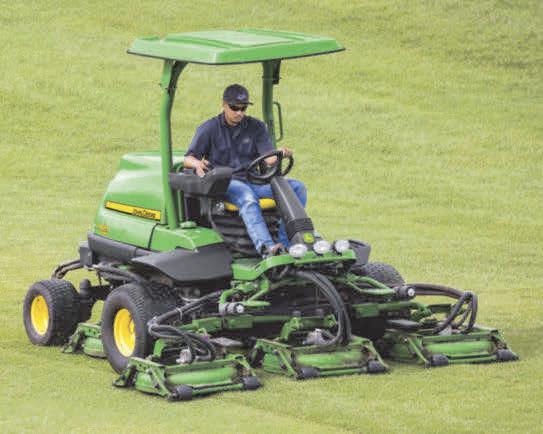
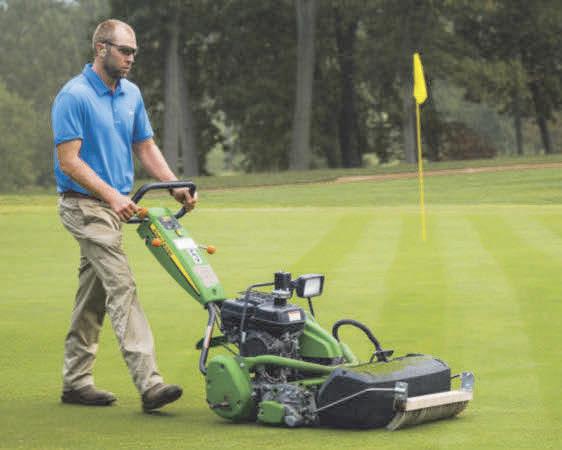


Our rough, trim and surrounds mowers greatly increase efficiency and trimming capability. From reels to rotary decks, we have you covered in the rough and surrounds.
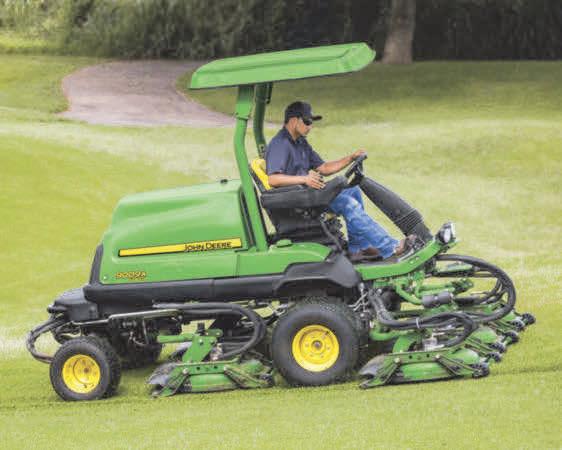
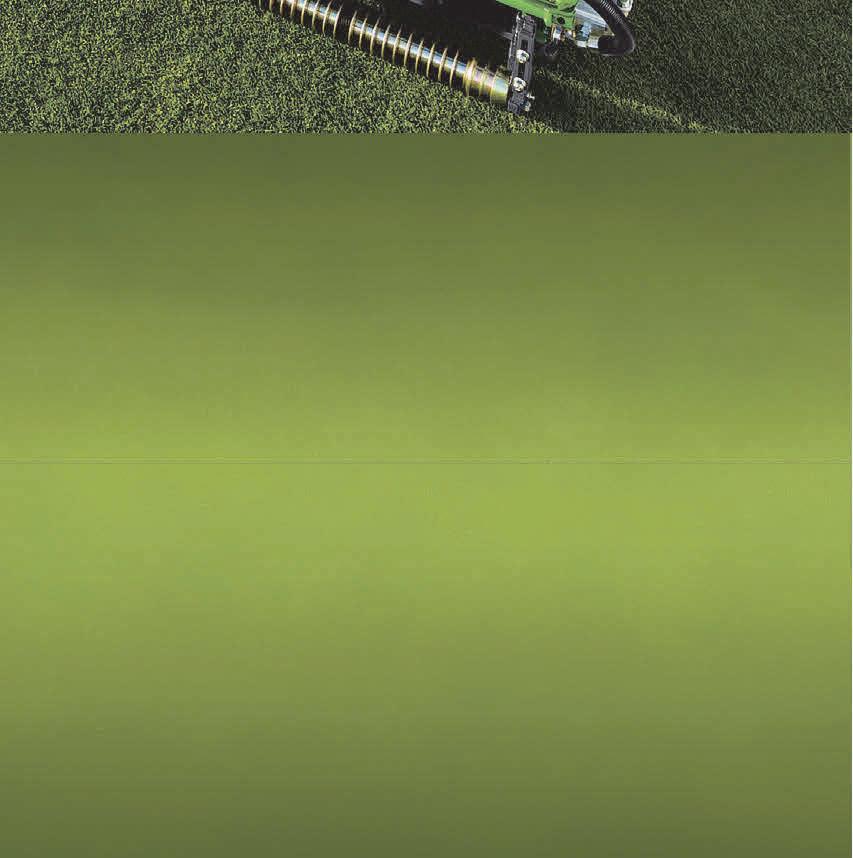
Our new A-Model PrecisionCut and E-Cut Hybrid Fairway Mowers give you more control and better results, thanks to our revolutionary TechControl display.

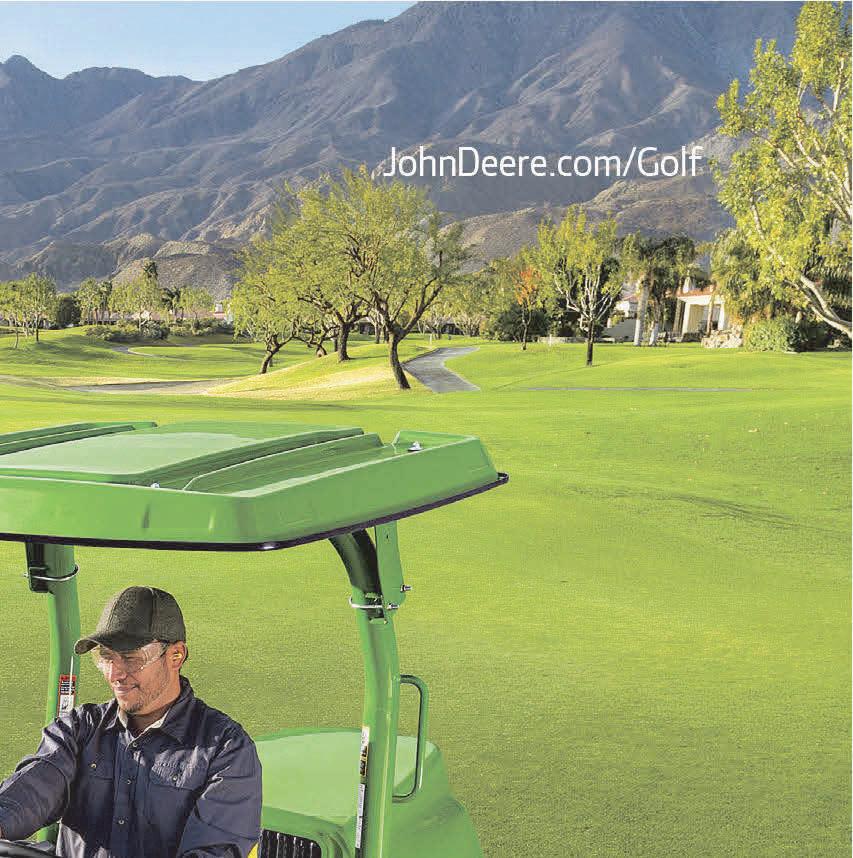

Brad Rounsaville
TerritoryManager, South MS & South AL (228) 424-2468
brounsaville@beardequipment.com
Bubba Jones TerritoryManager, North MS & East TN (864) 419-3391
bjones@beardequipment.com
beardequipment.com/golf
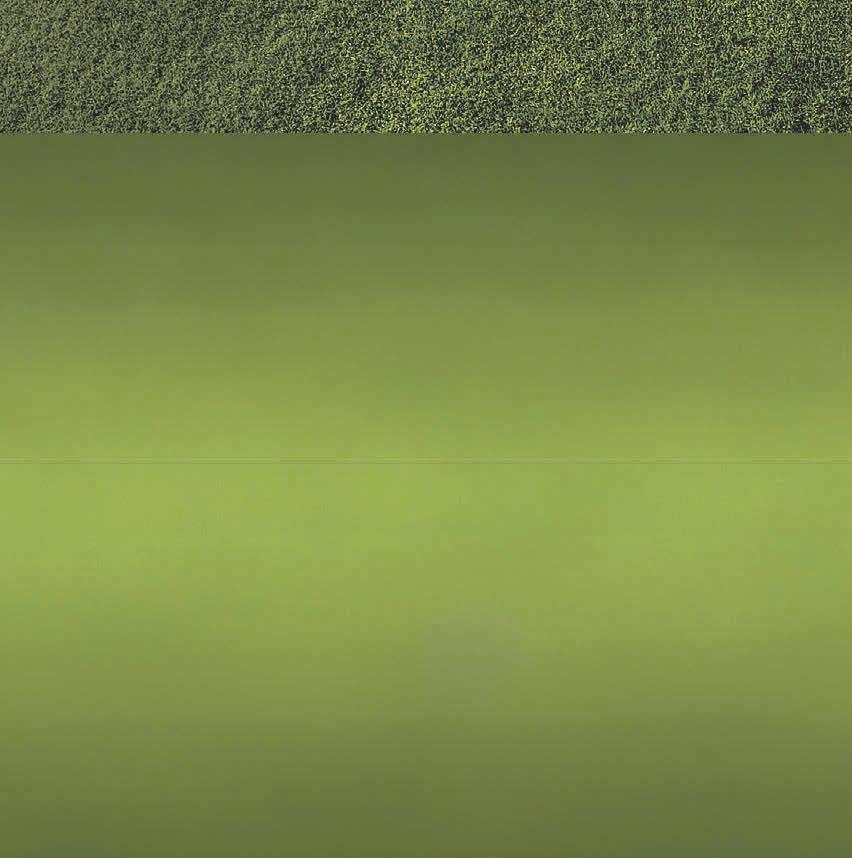


B0R04BYCU2C62932-00104864
ACTIVITIES & ACCOMMODATIONS

TAILGATE CELEBRATION
Kick off the Expo with your peers at Tailgate Celebration at The Preserve Golf Club, opening night, Tuesday, October 17th. Sponsors will be cooking up some tailgate favorites for you to enjoy while mingling and networking with attendees from all over the southeast. This event is free and open to all attendees, exhibitors, and guests. Preregistration is required to help plan food.
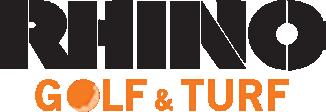

DIRECTIONS: 8901 Highway 57, Vancleave, MS 39565. Just 17 miles from Biloxi, travel east on I-10 and take exit 57 / MS-57. Turn north and the golf club will be two miles on the left.
SCRAMBLE GOLF TOURNAMENT
The scramble golf tournament will be held on Tuesday, October 17th at The Preserve Golf Club. The Preserve is an 18-hole course which has been integrated within an 1800-acre native preserve full of live oaks, cypress swamps, long leaf pines and native grass prairies and designed by Jerry Pate. Bring your clubs and prepare yourself for a wonderful afternoon of golf with your peers. Lunch and two drinks will be included in your registration (and the Tailgate Celebration will follow immediately after play). Pre-registration is required.
DIRECTIONS: 8901 Highway 57, Vancleave, MS 39565. Just 17 miles from Biloxi, travel east on I-10 and take exit 57 / MS-57. Turn north and the golf club will be two miles on the left.
SOFTBALL TOURNAMENT NEW FOR 2023!
Interested in a friendly game of softball with your peers? We are hosting a softball game where anyone who registers (free) can play a fun game of softball at the Gulfport Sports Complex on Wednesday evening, October 18th after the Expo closes. Teams will be randomly assigned and provided with team T-shirts. Must register in advance by September 25th. Bring your gloves and get ready to play!
DIRECTIONS: 17200 16th Street, Gulfport, MS 39503. From the MCCC, travel west on Highway 90 for 3.2 miles and turn right on Cowan Road (MS 605). Travel 4.4 miles to I-10 and travel west for 3.5 miles. Take exit 34B onto US49N for .6 miles. Turn left onto Landon Road for 1.3 miles and turn left into 16th Street. Travel .4 miles, the complex will be on the left.
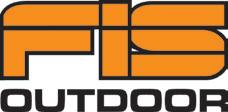

ACCOMMODATIONS Our host hotel is the BEAU RIVAGE , a Four-Diamond development by MGM Resorts International that sits directly on the Gulf of Mexico in Biloxi. The Deep South Turf Expo has secured a room rate of $107 for Expo attendees. Call the hotel directly at 1-888-567-6667 to make your reservations or go to www.DeepSouthTurfExpo. org to make them online. Be sure to mention you are with Deep South Turf Expo to get the discounted room rate. Don’t delay—our room rate is only available until September 15, 2023.
The MISSISSIPPI COAST CONVENTION CENTER is our home for the educational sessions and tradeshow at the Deep South Turf Expo. It is a multi-purpose, state-of-the-art facility that sits directly across the Gulf of Mexico just 5 miles west of The Beau Rivage at 2350 Beach Blvd., Biloxi, MS 39531.
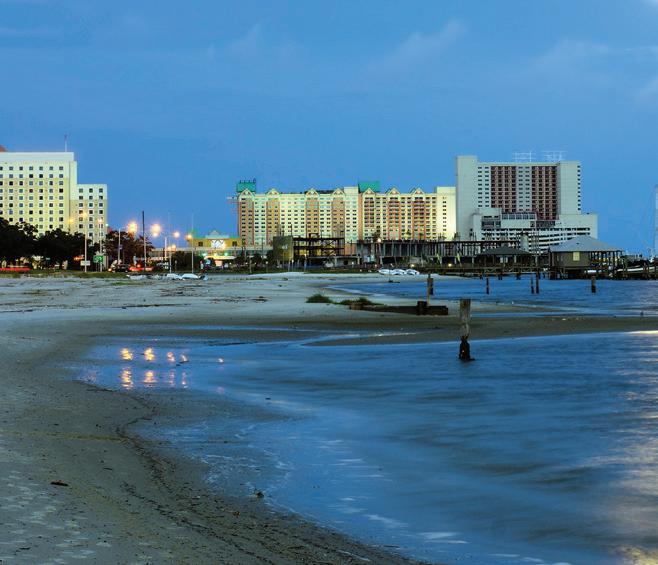
With over 20 educational sessions to choose from, plus a tradeshow with more than 100 exhibitors, this regional event is designed to benefit every turfgrass manager. Learn the latest and greatest research and management practices for growing the best southern turf. We welcome all sod producers, lawn care operators, landscapers, golf course superintendents and sports field managers to Biloxi, Mississippi for our seventh annual Deep South Turf Expo. Look inside for more details and registration information.

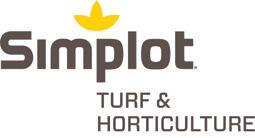
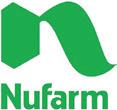



2023 SPONSORS

14 • MISSISSIPPI TURFGRASS • FALL 2023 COVER STORY • Continued

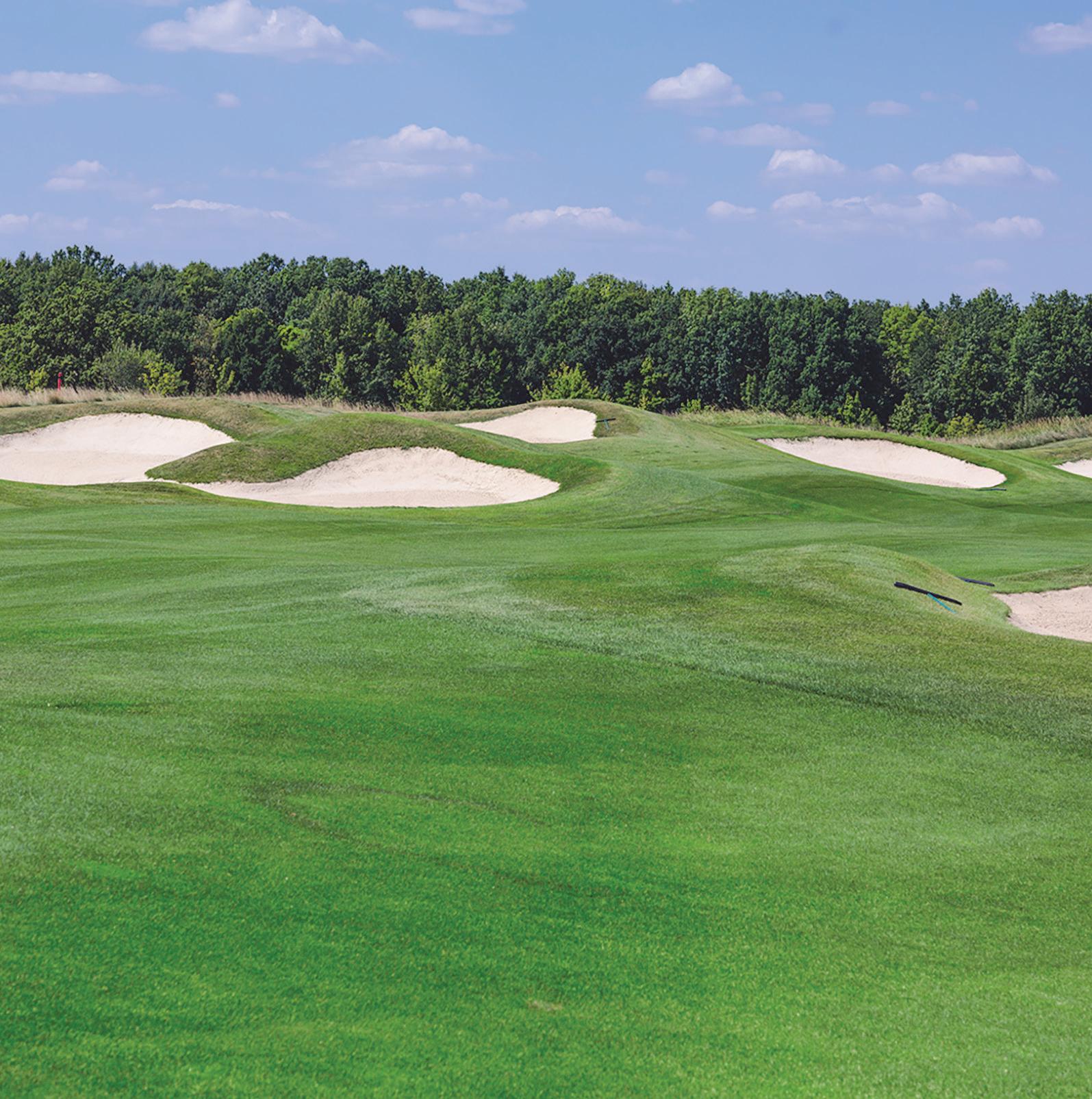


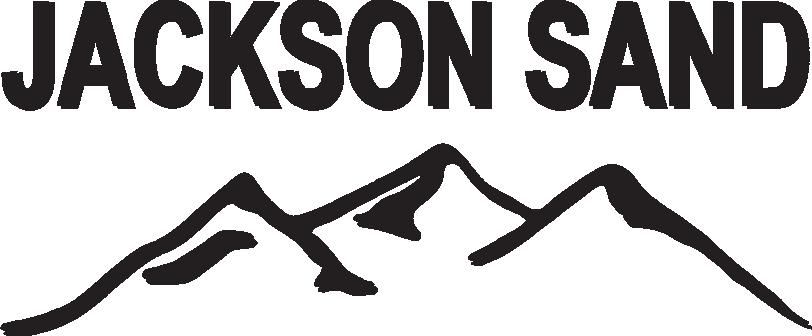




PO Box 9168 Searcy, AR 72145 www.agrainc.com Cell: 662-545-5664 Fax: 501 268-0606 Email: butchpugh@gmail.com Specialty Distribution Butch Pugh Located near BASTROP in NORTHEAST LOUISIANA, BAYOU BEND TURF GRASS is a grower of certified, quality TifEagle, TifDwarf, TifGreen and MiniVerde® grasses. (318) 281-9531 www.bayoubendturfgrass.com INDEX OF ADVERTISERS Agra Turf, Inc. ........................................ 15 www.agrainc.com Aqua Aid Solutions 8 www.aquaaid.com Bayou Bend Turfgrass ............................ 15 www.bayoubendturfgrass.com Cagle Sod Farm Inside Front Cover www.caglesod.com Green Point Ag 21 www.greenpointag.com Greene County Fertilizer Co. 34 www.greenecountyfert.com Harrell’s LLC Back Cover www.harrells.com Jackson Sand ......................................... 15 www.jacksonsand.com Jerry Pate Turf & Irrigation Inside Back Cover www.jerrypate.com KWMI / K & W Products, Inc. 11 www.KWMIequipment.com Ladd’s 5 www.bobladd.com Modern Turf, Inc. .................................... 21 www.modernturf.com Progressive Turf Equipment Inc. 27 www.progressiveturfequip.com Regal Chemical Company 3 www.regalchem.com Riebeling Farms, Inc. 31 riebelingfarmsinc@gmail.com Simplot Partners 7 www.simplotpartners.com Smith Seed Services 34 www.smithseed.com Sod Solutions 19 www.sodsolutions.com STEC Equipment ..................................... 25 www.stecequipment.com Sur-Line Turf, Inc. 31 www.surlineturf.com The Turf Zone 26 www.theturfzone.com Weed Man 27 www.weedmanfranchise.com Winstead Turf 29 www.winsteadturffarms.com
DSTE SOFTBALL TOURNAMENT RETURNING IN 2023!!
We are excited to announce that DSTE is bringing back the Softball Tournament.
SAVE THE DATES !
Join us in Phoenix for our annual Hospitality night during the GCSAA Conference and GIS. We will be partying at Hanny’s. Located at the prominent southwest corner of Adam’s and 1st Streets in downtown Phoenix, the building was constructed in 1947 originally as a department store. After its closing, Hanny’s was purchased by the city and was used to train the city’s firefighters. This building is now a fine dining restaurant but has held onto much of its history. There are odd bathrooms, an empty elevator shaft made of glass, and basement access to view dolls leftover from the factory. (Hanny’s is noted for being haunted! — check it out if you dare!!)

MAKE PLANS NOW FOR Wednesday, January 31, 2024 — 5:30 PM to 7:30 PM
MSU TURFGRASS RESEARCH FIELD DAY
September 21
Register online at www.pss.msstate.edu/workshops/turf
It will replace the Sporting Clay Tournament and will be held on Wednesday evening (October 18th) from 6 to 8 p.m. Keair Edwards is our host at the Gulfport Sportsplex in Gulfport, MS. We are limited to a field of 40 players so get your registration in, pronto. You may register online at the Deep South Turf Expo website: deepsouthturfexpo.org. We will be serving hot dogs and your favorite beverage. A tee shirt will be provided for you, bring your glove and a bat if you have one and enjoy a friendly game with bragging rights for the winning team.
DEEP SOUTH TURF EXPO
October 16 – 19
Register online at www.DeepSouthTurfExpo.org

MTA NEWS 16 • MISSISSIPPI TURFGRASS • FALL 2023
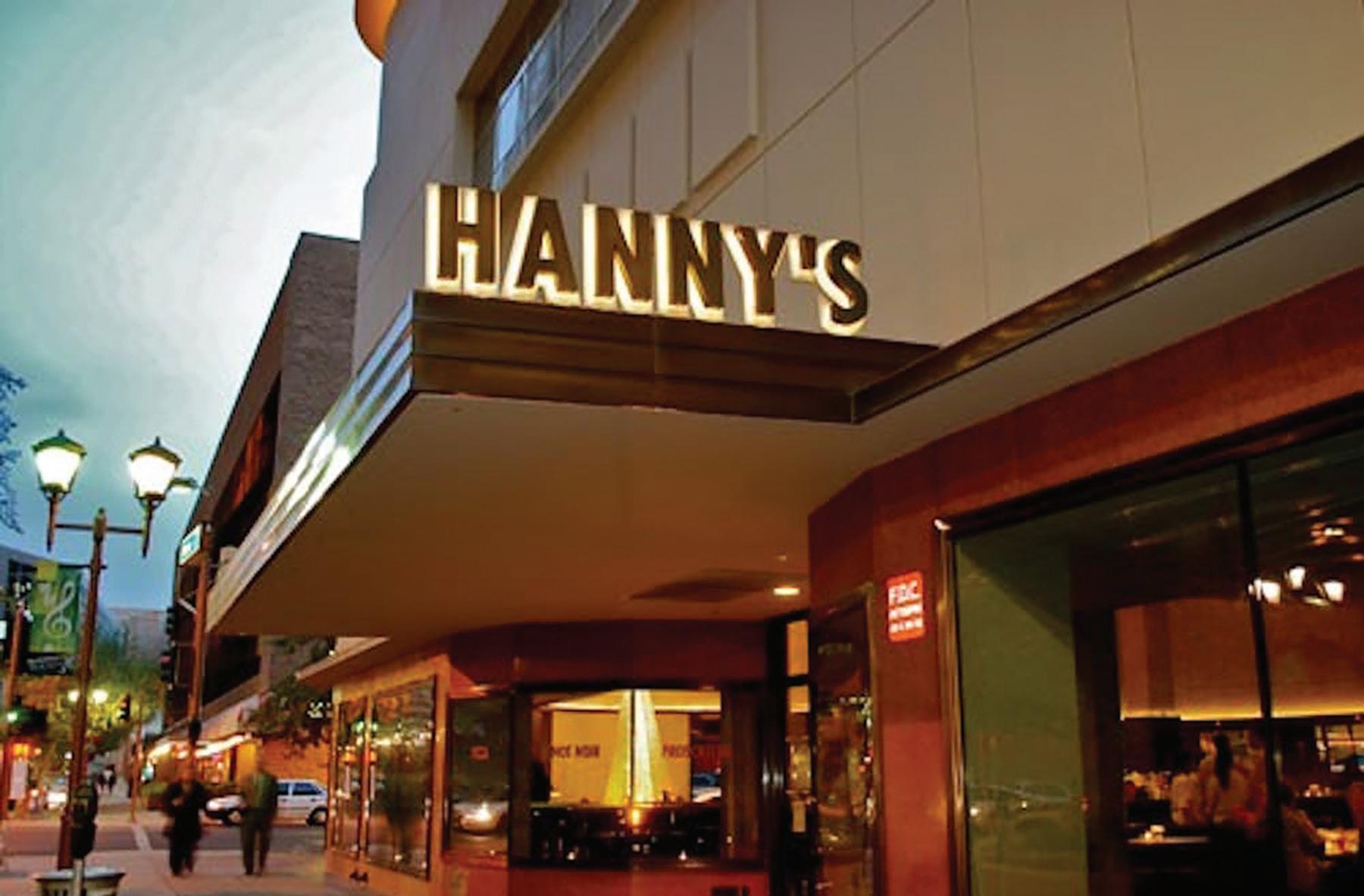
THE MISSISSIPPI TURFGRASS ASSOCIATION MAGAZINE • 17 “Hospitality Night” GCSAA Conference & GIS PHOENIX, ARIZONA Wednesday – January 31, 2024 5:30 PM – 7:30 PM Company Address City State Zip Individual / $25 Couple / $45 Total Enclosed $ PAYMENT METHOD (Pre-Payment is Suggested) Check Visa MasterCard American Express Card # Expiration Date DO NOT EMAIL CREDIT CARD INFORMATION! Signature HANNY’S • 40 N. FIRST STREET • PHOENIX, AZ 85004 * * MAKE CHECK PAYABLE TO MISSISSIPPI TURFGRASS ASSOCIATION * * Hosted By MSU ALUMNI • LMGCSA • AGCSA • GCGCSA QUESTIONS? Call Linda Wells 662-769-7558 OR EMAIL lmw218@pss.msstate.edu Send Registration Form to: Linda Wells Mississippi Turfgrass Association Box 9555 Mississippi State, MS 39762 Fax to: 662-325-2705 Catch up with all your peers and classmates!! Appetizers & Cash Bar $25 / PERSON $45 / COUPLE RSVP January 12, 2024
UPCOMING EVENT 18 • MISSISSIPPI TURFGRASS • FALL 2023
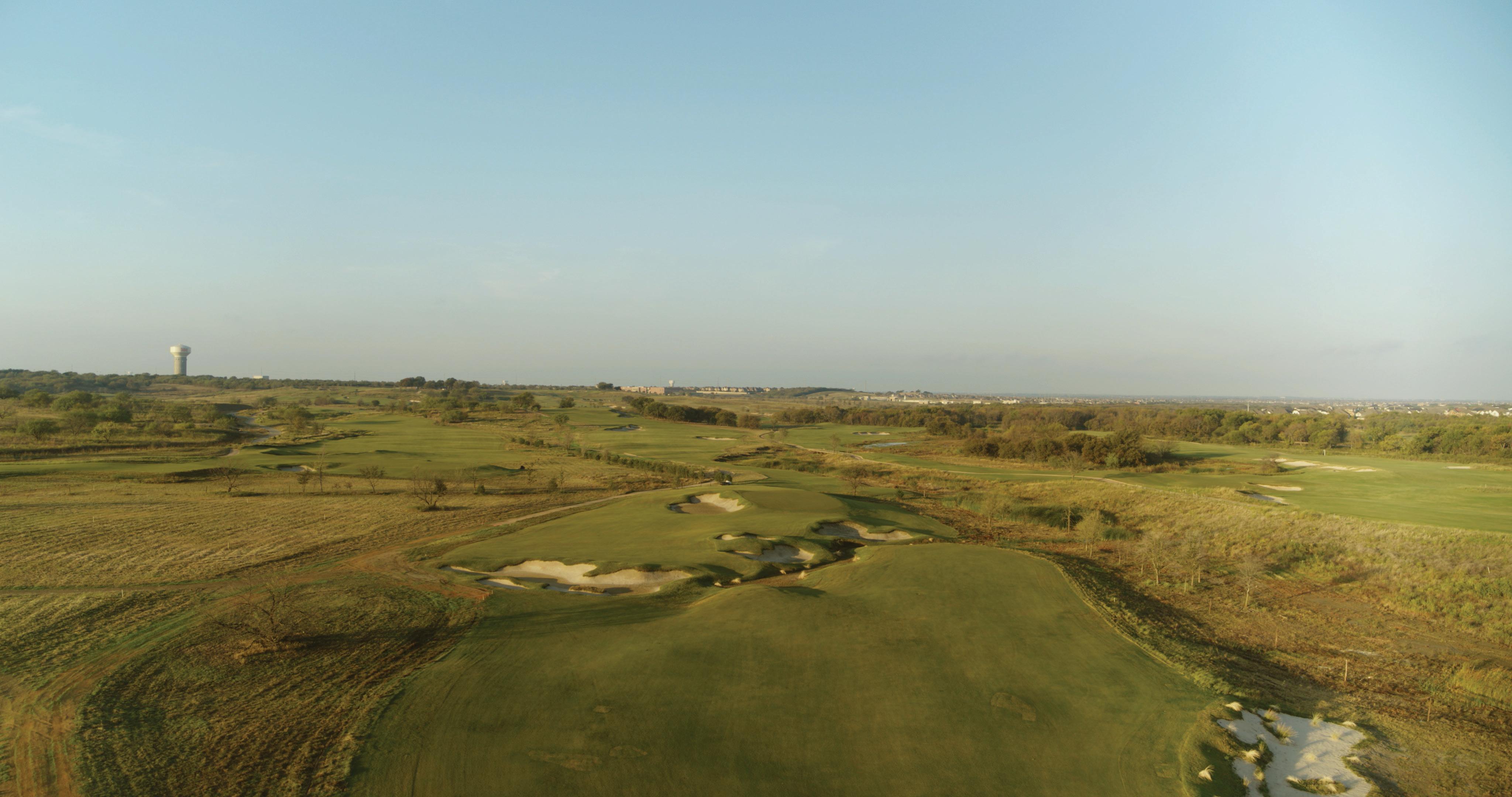
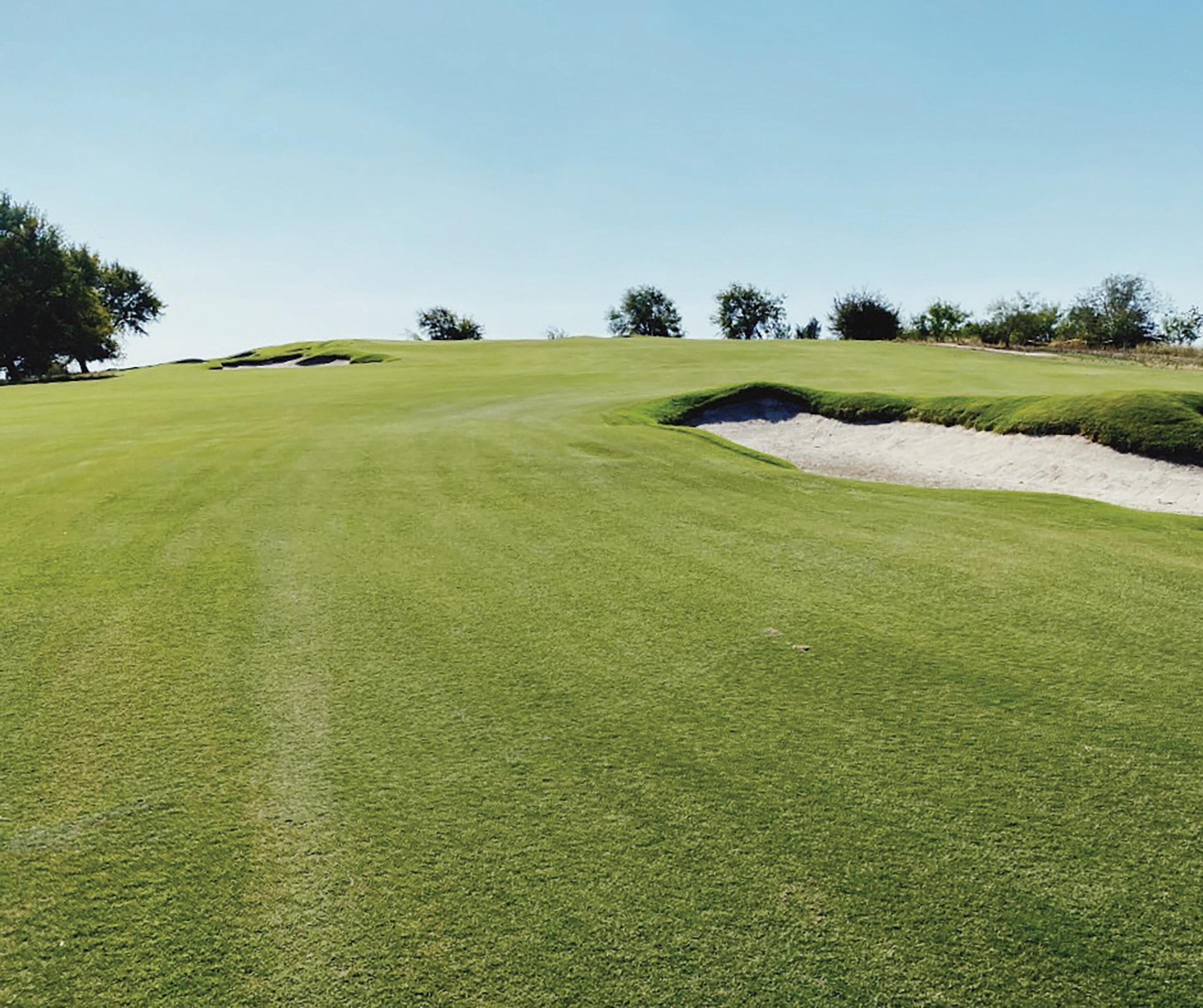
Welcome NEW TURFGRASS BREEDER , Dr. Marta Pudzianowska Dr.
Marta Pudzianowska has been working in the warm-season turfgrass breeding program at University of California, Riverside since 2017. Her efforts as a breeder focus on developing new bermudagrass and kikuyugrass cultivars with improved winter color retention and drought tolerance. She was born and raised in Poland, where she earned her master’s and doctorate degrees in Horticulture at Warsaw University of Life Sciences.

Dr. Pudzianowska will begin her tenure at MSU in the Turfgrass Breeder position in October. “I’m looking forward to joining the MSU team, to having my own program in a new environment.” While she will continue current breeding projects at MSU (bermudagrass and carpetgrass), her work will also begin with setting strategic planning goals to determine new directions. “It is essential that I make sure I know the needs of the
state/area. In breeding, I need to try to anticipate needs as they are emerging.” Dr. Pudzianowska plans to stay in touch with stakeholders in golf, sports, and LCOs to identify problems that are important in the industry in our region.
“I’m looking forward to collaborating and cooperating with other researchers and industry professionals. One of the most important lessons I’ve learned is that if I’m going to have success, I need to carefully look and listen to the people in the industry.”
In her life outside of work, she enjoys travel (being new to the US, she has a long list of destinations to visit) and active time outdoors, including hiking, kayaking, and soccer. Dr. Pudianowska is married and has two cats. Her other hobbies include graphic design and floral design.
MTA welcomes Dr. Pudzianowska!
MTA NEWS • Continued 20 • MISSISSIPPI TURFGRASS • FALL 2023


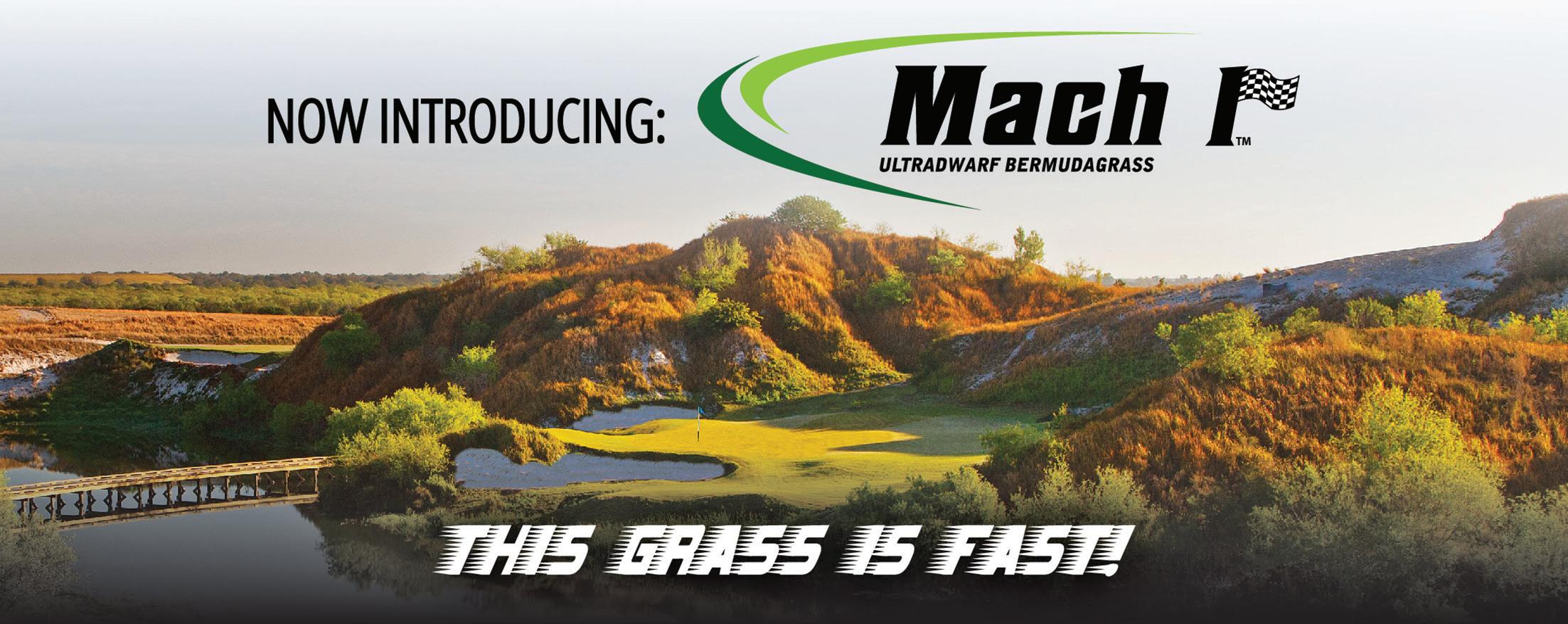
SEARCHING for the RIGHT GRASS on the Delta’s Edge Solar Farm
 By Barry
By Barry
Itall started with a contest/challenge from Cubico Sustainable Investments. Cubico is a global renewable energy infrastructure company, owning and operating large-scale solar farms. As part of its corporate responsibility program, Cubico created a competition for MSU College of Agriculture and Life Sciences (CALS) students to design potential agrivoltaic solutions to control vegetation on solar farms with diverse landscapes. William Stark, then a senior Golf and Sports Turf Management major at MSU, led a team of students from Dr. Jay McCurdy’s Turf Weed Management Class in authoring a research proposal that was funded by Cubico. William is now working on this project as part of his master’s degree under the direction of Dr. Barry Stewart. The research will be conducted at the Delta’s Edge Solar Project located in Carroll County near Greenwood, MS.
When completed, the Delta’s Edge site will have a capacity of 100 MW and be the largest solar installation in Mississippi. According to the publication NS Energy, the site will generate enough clean electricity to power 16,400 homes annually. The 652-acre site will be home to approximately 280,000 solar panels.
The focus of the research project will be to select the best grass or mixture of grasses to revegetate the area under the solar panels. This presents a challenge, as the solar panels will produce shade and may also alter how rainfall reaches the ground. However, the site is not totally covered with solar panels, and there is about an eight foot gap between the rows of solar panels. The panels pivot on their stanchions to allow them to follow the sun during the day (Photo 1). So, the grasses used must be able to thrive in full sun and in shade. This is why a mixture of grass species may be superior to a monoculture. The site is next to the Yalobusha River Levee so the grasses must also be tolerant of wet conditions parts of the year and dry conditions in other parts.
For Cubico’s interest the grasses should be low maintenance, as it will be difficult to mow under the panels, and maintenance operations have a potential to damage the panels. The likely mowing height for the site may be about six inches. Grasses that have high fertility requirements also usually have high mowing requirements and may not be well suited for this site.
22 • MISSISSIPPI TURFGRASS • FALL 2023
FEATURE
Photo 1. Solar panels at Delta’s Edge Solar Farm. The panels pivot on their stanchion to allow them to follow the sun through the day. Photo from Feb, 2023 (Photo: Jay McCurdy).
Stewart, William Stark and Jay McCurdy

THE MISSISSIPPI TURFGRASS ASSOCIATION MAGAZINE • 23
Common Carpetgrass (Axonopus fissifolius):
Carpetgrass is a slow-growing, medium green (and sometimes greenish yellow), coarsely textured turfgrass that is adapted to low-maintenance, general-purpose turf. It prefers full sun to moderate shade and performs well in wet, shady, acidic soils where other grasses may not. Carpetgrass looks similar to centipedegrass except that it produces a crabgrass-like seedhead, and centipedegrass has hairs along the edges of the leaves.
When I first came to MSU, and Dr. Goatley took me out to show me some carpetgrass, I thought, “man with a name like carpetgrass this must be one of the best grasses out there.” Then I was told it was a weedy grass at best and often something you wanted to get rid of. Through the years carpetgrass came up here and there. One year at the Golf Course Show Turf Bowl, the centipedegrass samples were actually carpetgrass (this was caught before it was used in the contest). Dr. Gregg Munshaw and Wayne Philley once presented a project to do carpetgrass breeding work to have a low growing native grass for highway right of way. A few years later many homeowners found out that much of their centipedegrass lawns were actually carpetgrass when the Scotts Company changed the active ingredient in Bonus S fertilizer from simazine to metsulfuron. I have encountered some stands of carpetgrass that were well kept and quite attractive. It is a niche grass that often thrives in moderately well drained to wet acid environments. These are the conditions we have at the Delta’s Edge site.
Why Carpetgrass at Delta’s Edge?
Seed is inexpensive [$8 per lb. Pure Live Seed, PLS (Pure Live Seed)] and is readily available. It is a native grass and is adapted to the conditions at this site. It has low fertility and maintenance requirements. Other than seedhead control, carpet grass has a low mowing requirement and, at the desired height of cut for this site, even the seedheads may not be an issue. Carpetgrass establishes rapidly with a germination time of four to seven days. We are testing carpetgrass alone, in a mixture with tall fescue, and in a mixture with centipedegrass.
Centipedegrass (Eremochloa ophiuroides)
Centipedegrass is often called a “poor man’s grass” due to its low mowing and fertility requirements, but if one considers the price of centipedegrass seed ($30 per lb. PLS) it is probably more of a “lazy man’s grass”. Centipedegrass is a slow-growing, coarsetextured, warm-season turf that is adapted for use in low maintenance situations. It also has a light-green color and spreads by stolons. One drawback to centipedegrass is slow establishment. An old saying about centipedegrass is “first it sleeps” (germination time of 21 days or more), “then it creeps” (slow growth in the first year), “then it leaps” (more rapid fill in the second year).
Why Centipedegrass at Delta’s Edge?

Seed is available, albeit expensive. Once established, centipedegrass has good turf quality for a low maintenance turfgrass. We are using centipedegrass in a mixture with carpetgrass. Mixtures like these were once sold as “Centiseed” in which carpetgrass was used as a nurse-grass for centipedegrass, and then the carpetgrass was outcompeted by the centipedegrass or removed with herbicides.
Turf-type tall fescue (Schedonorus arundinaceus)
Each semester in PSS 1313 lab, we take the students to the R.R. Foil Plant Science Research Center (North Farm) to look at turfgrasses. One stop is always the NTEP Tall Fescue test. Turf-type tall fescue is one of the best examples of the impacts of plant breeding we have. Kentucky 31 is included as a standard in this test and represents a starting point. Although not a turf-type tall fescue, K31 was a pasture cultivar that was mowed closely and was used as turf. Through the work of plant breeders, we now have dark green cultivars that are much finer in texture and have high turf quality. In a project we did with Mississippi Department of Transportation about ten years ago, we found that turftype tall fescue did very well on roadsides, and if the mowing height was six inches or above, it would not be touched by a mower until flowering stage in the spring. Our NTEP tall fescue test on the north farm is in full sunlight, and it does very well each year. In most of Mississippi, tall fescue is used as a shade grass but our experience with the NTEP test suggests that modern turf-type tall fescue cultivars can thrive in the north Mississippi climate with minimal inputs.
24 • MISSISSIPPI TURFGRASS • FALL 2023
Some of the grasses being evaluated at Delta’s Edge and our rationale for using them:
FEATURE • Continued
Photo 2. Pre-tillage conditions at Delta’s Edge Solar Farm Photo from June, 2023, (Photo: Barry Stewart).

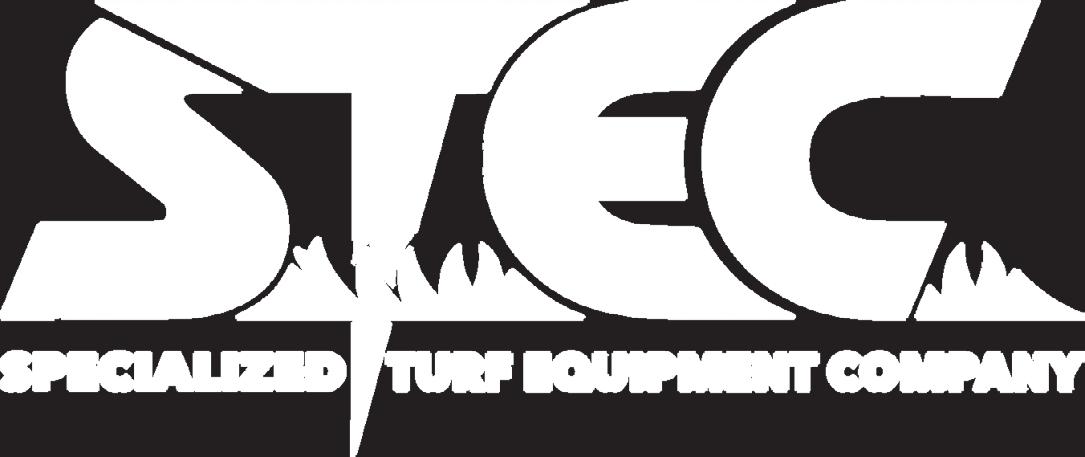
QUALITY. INNOVATION. DELIVERED. TIME IS MORE VALUABLE THAN EVER. MAKE THE MOST OF IT! GKB's Line of High-Capacity Spreaders, Top Dressers and Material Handlers allow you to distribute more material, FASTER. @STECEQUIP WWW.STECEQUIPMENT.COM (888) 325-2532
Why tall fescue at Delta’s Edge?
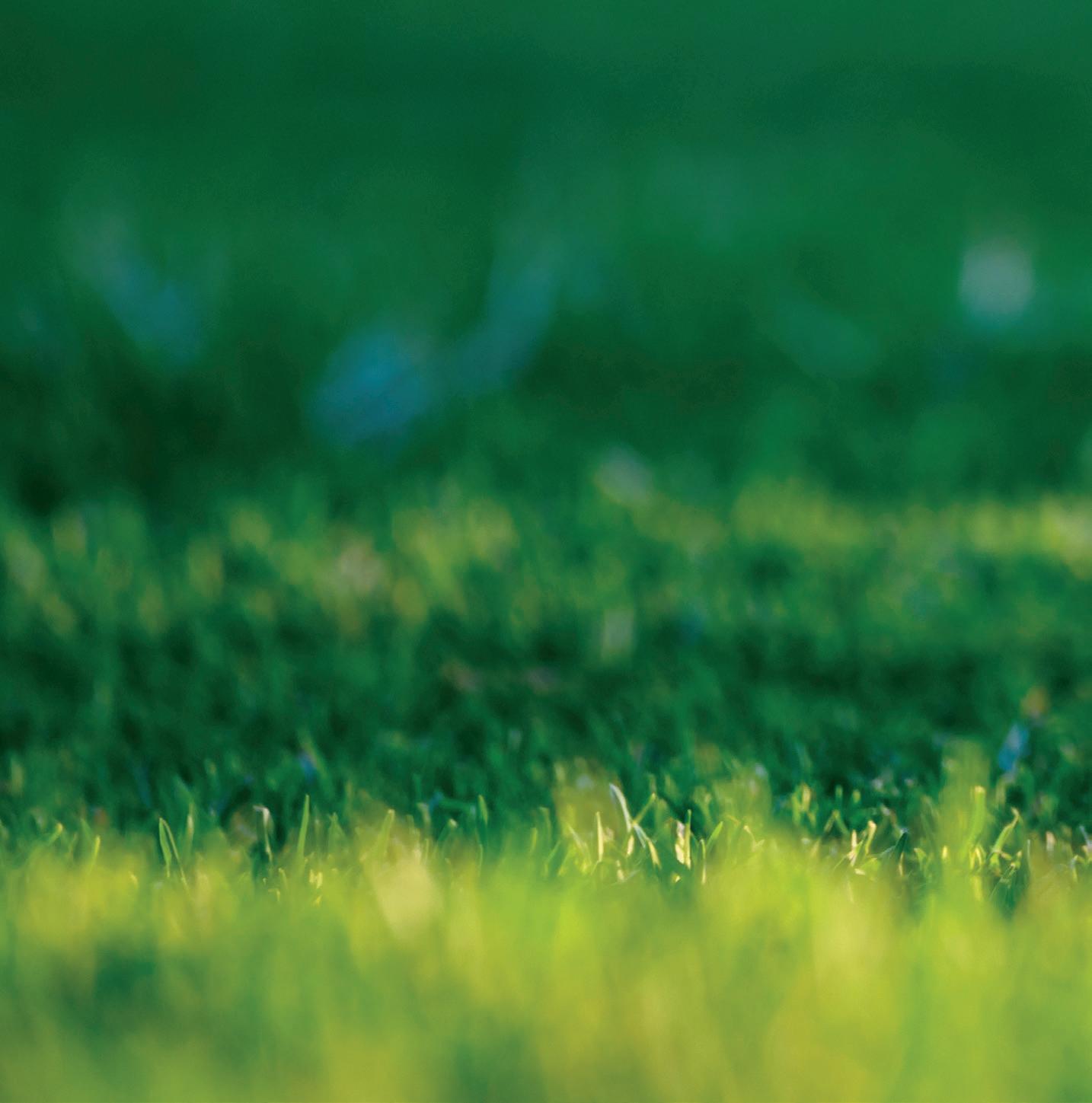
Seed is readily available and inexpensive ($4 per lb. PLS). It establishes well from seed. It is somewhat shade tolerant. It has moderate fertility requirements and is otherwise low maintenance. It has proven to do well in Mississippi’s Highway 82 corridor. We are using turf-type tall fescue alone, in mixture with carpetgrass, and in mixture with fine fescues to enhance shade tolerance.
Seeded turf-type bermudagrass (Cynodon dactylon)
Bermudagrass is the standard for low maintenance areas in Mississippi. It has some drawbacks that may limit its effectiveness at Delta’s Edge. It is a full sun grass, so it may struggle with the shade of the solar panels. It has a relatively high fertility requirement to remain competitive. Without these inputs, its turf quality will suffer—it will be light green, prone to weed invasion, and may have decreased winter hardiness. Seed is moderately expensive (for high quality cultivars) but is readily available.
Buffalograss (Bouteloua dactyloides)
Establishment of buffalograss on MSU’s North Farm was once a struggle, but the seeded cultivar ‘Cody’ (and more knowledge) has changed that. Cody was included in two NTEP tests, and it has thrived to the point of expanding well beyond its plot boundaries. What have we learned? Buffalograss thrives in moderate to heavy textured soils and on low fertility (no more than 2 lbs. N per 1000 square feet per year). One drawback to buffalograss is poor shade tolerance, but research at a similar site in Texas suggests that buffalograss works well for solar farms.
In summary
Our two-year experiment at Delta’s Edge will give us insights into how these grasses and mixtures perform in this environment. Our goal is to be able to make evidencebased recommendations for this and other solar installations in Mississippi and the larger Southeast. The next step will be to incorporate flowering forbs to provide pollinator habitat. •

FEATURE • Continued 26 • MISSISSIPPI TURFGRASS • FALL 2023
sales@leadingedgecommunications.com 888–707-7141 Over 10,000+ Impressions for Top News Post for June 2023 https://twitter.com/TheTurfZone/status/1667634993198424064 Over 8,000+ Impressions for Top Sponsored Post for June 2023 https://twitter.com/TheTurfZone/status/1665765350829424643 2.6 Million Impressions in 2023 and Growing! twitter.com/theturfzone Contact us today to learn about effective and unique TurfZone marketing strategies that target turf industry professionals.
Photo 3. William Stark tilling at the Delta’s Edge Solar Farm. June 2023. (Photo: Barry Stewart).


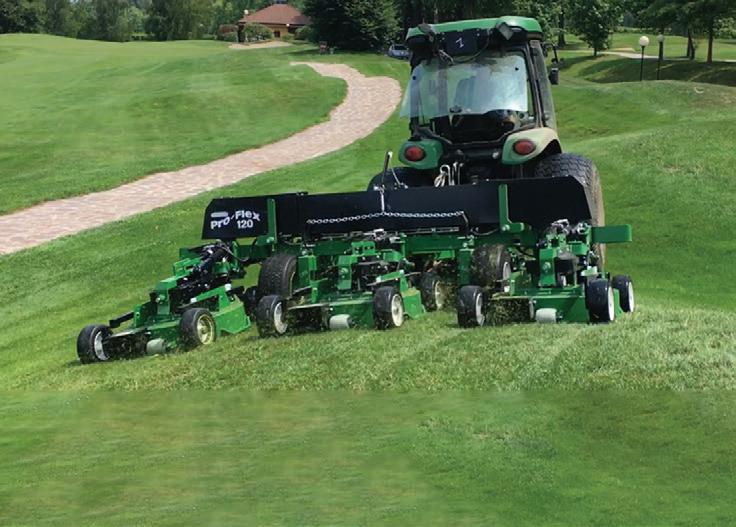
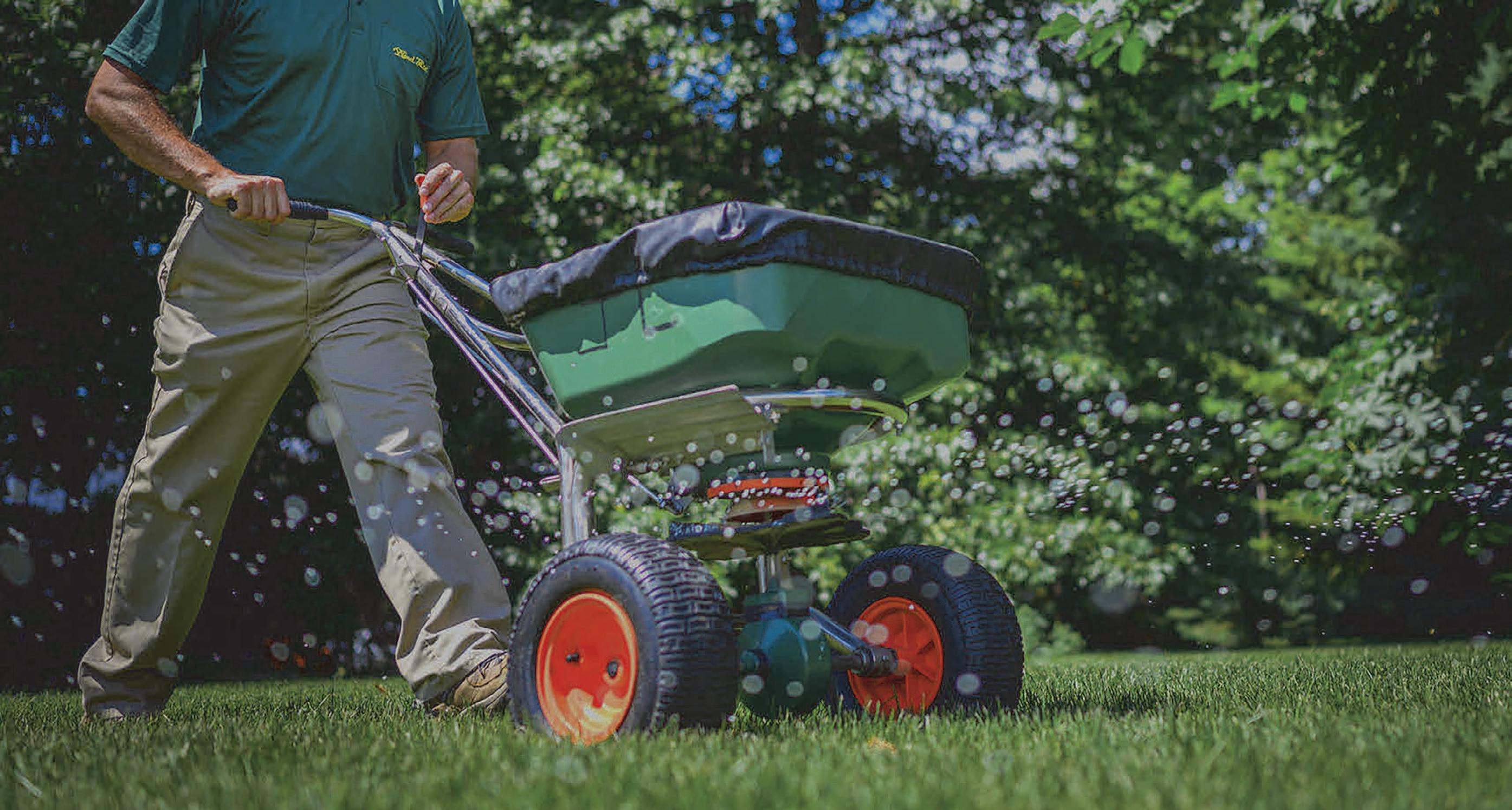

WWW.PROGRESSIVETURFEQUIP.COM 800.668.8873 Better Built. Quality Results. Period. Quality built in North America and supported by a world-wide Dealer network. Tri-Deck cutting widths: 12’, 15.5’, 22’*, 36’* Roller Mower cutting widths: 65”, 90”, 10.5’, 12’, 15.5’, 22’*, 29.5’* Contour/rough finishing mower: Pro-Flex™ 120B 10’ cut TDR-X™ roller mower 10.5’ cut Progressive Turf builds the right mowers and rollers for any field. For over 30 years they have set and re-set the standards in commercial grade mowing equipment. Contact your Progressive Dealer to find out why Progressive products are outstanding in any field! * available with bolt-on galvanized deck shells Turf Grass Production Mowers Contour / Rough Finishing Mowers Sports field, Park and Estate Mowers One of the best franchises to buy in America. - Forbes Magazine NO. 2 RANKED The Best Franchises to Buy Lowest Level Investment < $150K Opportunity by Forbes NO. 1 RANKED Franchise in Lawn Care by Entrepreneur Magazine year after year NO. 1 RANKED In Franchise Business Review’s Top Service Franchises FOR FRANCHISE INFORMATION: weedmanfranchise.com or call (888) 321-9333 S C A N F O R FRANCHISE INFO
of the INDUSTRY STATE
A PERSPECTIVE FROM TURFGRASS PRODUCERS INTERNATIONAL
 By Dr. Casey Reynolds, Executive Director TPI
By Dr. Casey Reynolds, Executive Director TPI
Turfgrass Producers International (TPI) has members who produce and sell turfgrass seed and sod in almost every U.S. state and over 30 countries. As I travel to visit with them, speak at conferences, write magazine articles, etc., I often get to speak with producers first-hand about what they’re experiencing in their local markets. This often includes the good and the bad, and oddly enough no matter where I go, the themes are usually similar. From a farm’s perspective, demand is up; costs are up; labor is short; and where did all the truck drivers go? From a market perspective, consumers and policy-makers increasingly just don’t understand natural grass lawns and their benefits, and in many areas of the country, they are quite literally trying to write them out of new construction, through local ordinances which ban or dis-incentivize the use of grass.
So where does this leave us? In the short run, housing is still quite hot and the demand for grass ebbs and flows with it. In the long run, will the next generation of consumers and home-buyers value or even want lawns, landscapes, natural grass athletic fields, and golf courses? The short answer to that question is that it’s up to us. But let’s revisit that a little later.
FEATURE
28 • MISSISSIPPI TURFGRASS • FALL 2023
This article was originally printed in Alabama Turf Times, Summer 2023 and is reprinted with permission.
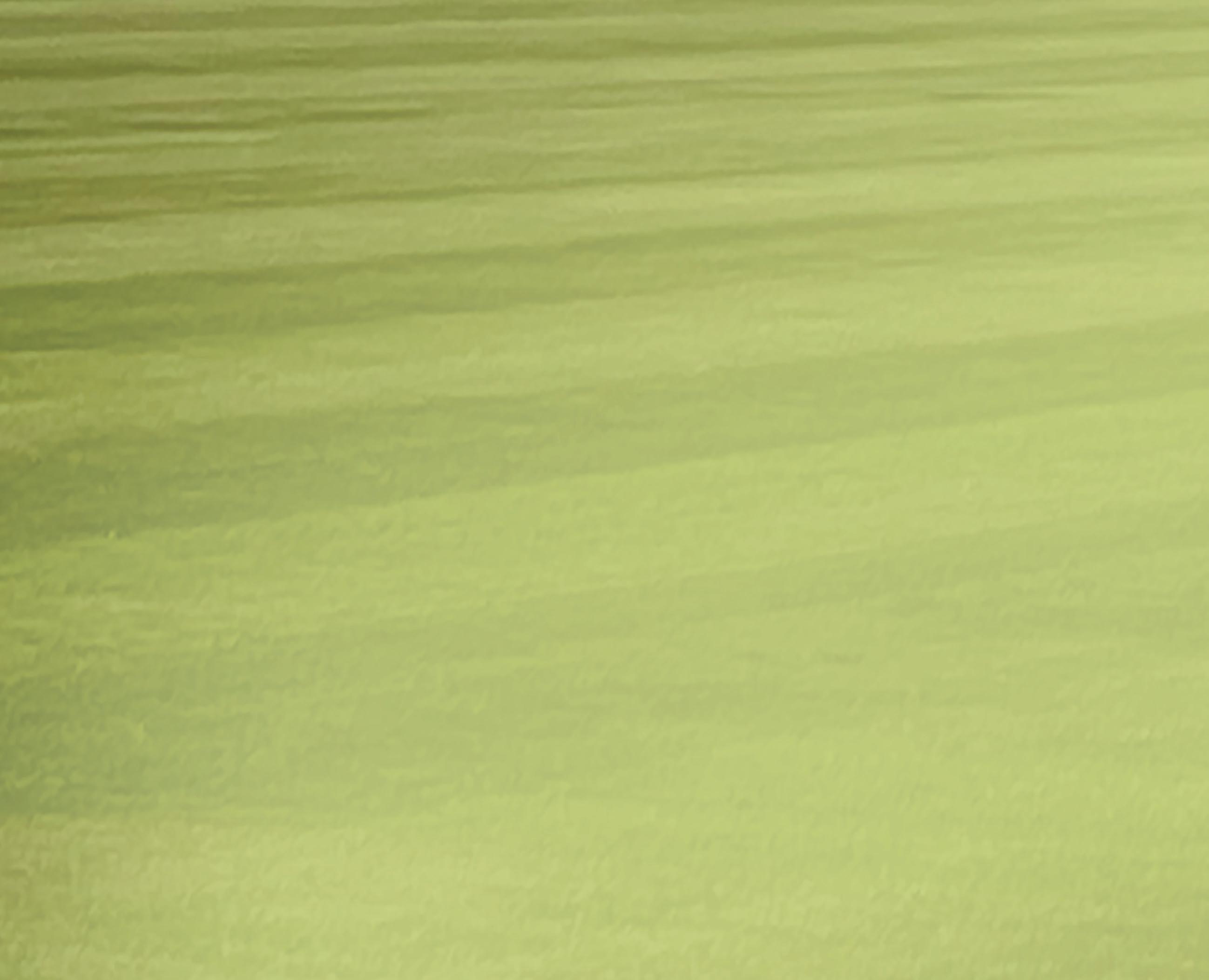

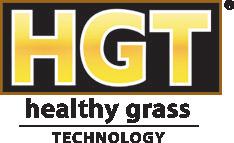
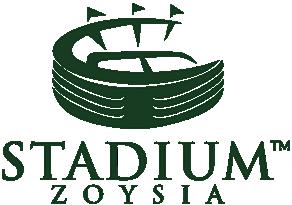


The Right Grass for Your Home Turf! Doug Estes 901-268-8803 PRESIDENT Bobby Winstead 901-867-8116 Whit Davis 615-405-3705 Chance Meredith 901-430-5620 While serving the entire Mid-South for the past 45 years, our goal continues to provide the highest quality, innovative turfgrass on the market today while providing the best customer service. winsteadturffarms.com Middle / East TN • Winstead Turf Farms, Inc. • 296 Bill and John Ln. • Hurricane Mills, TN 37078 • 615-405-3705 winstead-turf-farms-inc winsteadturffarm @winsteadturf winsteadturf COMING SOON West TN • Winstead Turf Farms, Inc. • 22860 Highway 196 • Arlington, TN 38002 • 901-867-8116 GOLF • ATHLETIC FIELDS • LANDSCAPES • HOME LAWN
Data from the U.S. Department of Housing and Urban Development indicates that as of March 2023, purchases of new homes increased for a third consecutive month. Construction of new homes rose in February and sales of existing homes surged after a 12-month decline. The U.S. Census Bureau shows that New Housing Units are still strong, despite a recent drop-off from the post-covid boom (Figure 1). As such, turfgrass producers in most areas of the country including Alabama sod producers, are still reporting strong sales, high demand, and sometimes low inventory.

While this is good news for producers and others in the green industry who rely on lawns, landscapes, sports fields, and golf courses, it is no surprise to anyone that costs are also up. The U.S. Bureau of Labor Statistics has some useful tools on its website at https://www.bls.gov . If you’re a data junky, or just a little curious to see it on paper, you can find some helpful charts and graphs that track the costs of goods and services over many years. It should be no spoiler that food, energy, raw materials, transportation, and warehousing are all up when compared to pre-Covid levels. A little good news is that all 2023 Producer Prices Indexes are down when compared to 2021 and 2022.
Like many industries, turfgrass seed and sod producers routinely look for efficiencies to reduce these costs and often find them in new equipment, automation, digitalization, GPS/Remote Sensing technologies, new techniques or practices, and so on. It would be difficult to list them all here, but out of necessity comes innovation and there is always a better way to do things. There are certainly plenty of those opportunities out there just as there are in other segments of the green industry.
Now, let’s change course from a production perspective to a market perspective, which is just as likely to impact the state of our industry. With that in mind, what is the current and future consumer perception of lawns and other green spaces?
I suspect many of you have seen recent headlines such as “Kill Your Lawn Before It Kills You”, “American Lawns: Ending the Toxic Yard” and so on. If we need further proof of that, simply Google the phrase “Lawns are” and you can see the top search terms that people are entering into common Google queries. The top hits include Lawns are “bad, stupid, wasteful, colonialism, useless, ecological disaster,” and so on.
While it is easy to sometimes write these off as op-eds, there is definitely consumer research that shows we as an industry should take these seriously. Eighty-two percent of consumers are familiar with sustainability, up from 55% in 2007. Additionally, between 51 and 95% of consumers will pay more for products aligned with their values on sustainability. Counter that with the fact that less than half of consumers are aware of the environmental benefits of lawns and other green spaces. It also differs by generation where consumers between 18 and 34 years old are less aware of the benefits than consumers 35 years old and older. It also doesn’t help that the next generation of home buyers are right now playing middle, high school, and college sports on an increasingly large number of plastic, synthetic turf athletic fields.
So, what does this mean for the future of green space? It means that we as the green industry in general, need to take our story of the benefits of lawns and other green spaces and shout it from the rooftops. We absolutely need to be educating the current and next generation of consumers on the ecosystem services that lawns and other green spaces bring to the urban-suburban interface. Just as one example, a 2018 research paper indicated that for one urban/suburban city venue, 89% of the carbon that was captured or sequestered, along with 88% of the water quality regulated and 81% of the runoff regulated for that entire city was being done by managed grasses. Follow-up question, do your customers, neighbors, city council members, and others know it?
I most often find they don’t. If that is the case, please refer them to www.TheLawnInstitute.org where they can find many of the benefits of lawns. Share the information with everyone. Voters need to know the true story as well as those making purchasing decisions and politicians setting public policy in communities all over the United States.
In the last 12 – 18 months alone, I have had to respond to turfgrass bans or restrictions all over the country, and yes, they include northern states and southern states, eastern states and western states, and red states and blue states. That seems so ironic because one thing that the Covid-19 pandemic restrictions highlighted was that once people stayed at home, they often realized they wanted to spend more time outdoors enjoying their lawns and landscape. This is the primary reason our industry weathered that storm so well. Interestingly, prior to the pandemic, Turfgrass Producers International (TPI) funded consumer research on the perceptions of lawns and found that once you explain the many benefits of turfgrass to people, they understand it and are willing to continue investing in natural grass lawns.
So, how do we do this in a meaningful way? One industry initiative right now that you may have heard about is a proposed USDA Research and Promotion Program, aka “checkoff,” for sod production. There are currently 22 USDA Research and Promotion Programs (aka checkoffs). They have a long, proven history of funding research and promotion of agricultural products having been around since the 1960s. Since then, the current 22 checkoffs combined routinely raise 1 billion dollars each year to fund research and promotion of their products. Many, if not all, checkoff programs arise out of an industry’s need to push back against market threats or shifting consumer trends, as well as to fund research on improving products or techniques. The soybean checkoff this year alone identified up to $400 million in
FEATURE • Continued
30 • MISSISSIPPI TURFGRASS • FALL 2023
FIGURE
1
unrealized market potential and then funded research to address it.
Current estimates put a potential U.S. Sod Checkoff program at raising around $14 million annually to fund local and national research, as well as the promotion of lawns and other green spaces. Who knows what potential value it could be to our industry, but there is little doubt that everyone in the green industry, not just sod producers, could benefit by having a checkoff program promoting natural grass. Many of the associations representing our industries have gone on record saying they support the sod checkoff initiative. The National Association of Landscape Professionals, the Sports Field Managers Association, the US Golf Association Green Section, the American Farm Bureau, and others have stated that they understand the need for national and local research and promotion efforts to protect and promote green space. If you want to learn more about the proposed sod checkoff, visit www.SodCheckoff.org to stay up to date on the latest information.

Now, as we talk above about the current and future status of our industry, I’d just like to add a quick editorial perspective. One sod producer recently wrote about rising inflation, increasing fuel costs, and an unpredictable stock market in TPI’s Turf News magazine. When I say “recently,” that article was published in 1999. We had another sod producer write about ever-increasing water restrictions and the artificial turf market. That was in 2004. The point being, the challenges and opportunities we have today aren’t often that drastically different from those we faced years ago. Going forward, we should all be proud of how our industry responded to the changing dynamics of the past. Also, you should have comfort in knowing that Alabama Turfgrass Association members live and work in a great industry, and with vision, proper planning, and last but not least, proper investment in our industry’s future, we can make sure it thrives for many years to come. •

Riebeling Farms, Inc. 251-943-6012 CitraBlue St Augustine • Palmetto St Augustine Empire Zoysia • Centipede Sod • Delivery Available 20732 Hadley Rd. • Foley, AL. 36535
DAWG YARD
CLASSIC
22 Teams played in the 21st annual Yard Dawg Classic. It was one of the best ever! Jimmy McPherson and Jake Sorrells had the MSU Golf Course in perfect playing conditons, the weather cooperated and everyone enjoyed seeing the renovations since last playing the course. Special thanks to Jim Basel and his staff for coordinating the tournament. Great job!
Special thanks of course to our loyal sponsors! It is absolutely impossible to hold an event like the Yard Dawg without them. Please remember them when making purchases for your business.
AND A BIG SHOUT-OUT to all the MSU alumni who came and supported the turf program at State! It was a pleasure to see so many former students.
FIRST PLACE WINNER
The team sponsored by Harrell’s, Inc.: Zak Holloway, Brad Suggs, Buddy Dill and Hunter Atkins

SECOND PLACE WINNER
The Agra Turf, Inc. team: Jeremy Tate, Don Pickens, Scott Pitts and Shawn Emmack


THIRD PLACE WINNER
The team sponsored by US Lawn: Logan Pannell, Cole Ruffin, Jason Ruffin and Andrew McCaa
CLOSEST TO THE PIN WINNERS
John Tidwell, Gib Fox and Seth King
LONGEST DRIVE WINNER
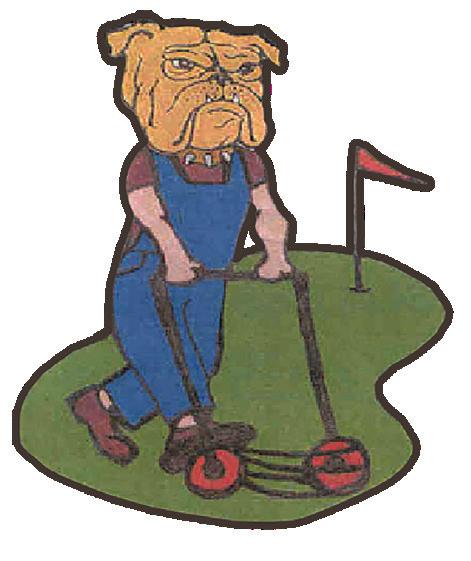
Lucy Matthews
STRAIGHTEST DRIVE WINNER
Cole Ruffin
First Place WINNERS
Second Place WINNERS
Third Place WINNERS
32 • MISSISSIPPI
2023
RECENT EVENT
TURFGRASS • FALL
Congratulations to all the winners!







 MTA President Will Arnett thanking everyone for attending. And, thanking Tim Basel & staff, MSU Superintendent Jimmy McPherson and MSU Assistant Superintendent Jake Sorrells for doing such a great job of hosting.
MTA President Will Arnett thanking everyone for attending. And, thanking Tim Basel & staff, MSU Superintendent Jimmy McPherson and MSU Assistant Superintendent Jake Sorrells for doing such a great job of hosting.







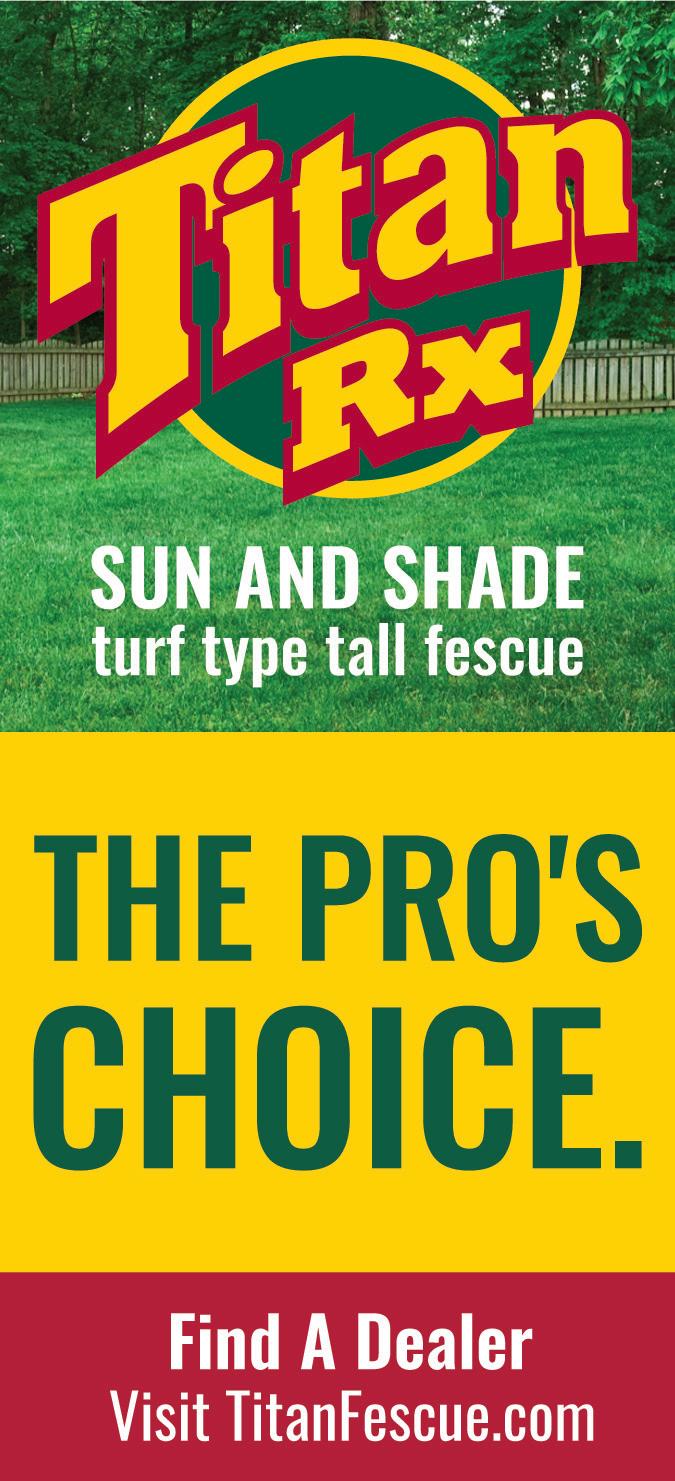


34 • MISSISSIPPI TURFGRASS • FALL 2023 RECENT EVENT • Continued Growth Happens Here. . BUY/SHIP DIRECT High performance liquid fertilizers, soil amendments, and every control product you need is right here under one roof. GROW YOUR BUSINESS. WE’LL GROW YOUR TURF. Healthy turf starts with Greene County Fert. Learn more: GreeneCountyFert.com Thanks to Our 2023 YARD DAWG CLASSIC SPONSORS Beer Donated By
VENTRAC MR770 TRIPLEX REEL MOWER
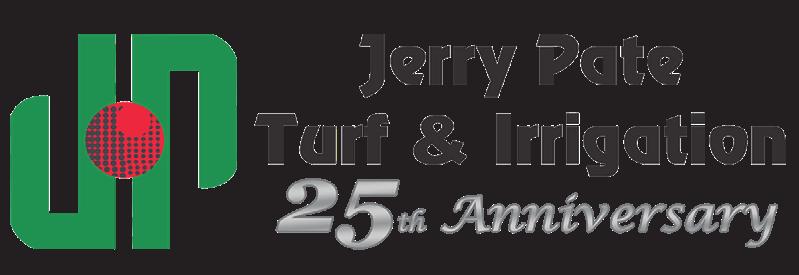
If reel mowing on steep slopes is a concern, the Ventrac MR770 trim and surrounds reel mower is the right choice. With a 77” width of cut, variable speed hydraulics, standard back lapping valves, and optional roller brush kit, the Ventrac MR770 includes many features to ensure a superior finish.
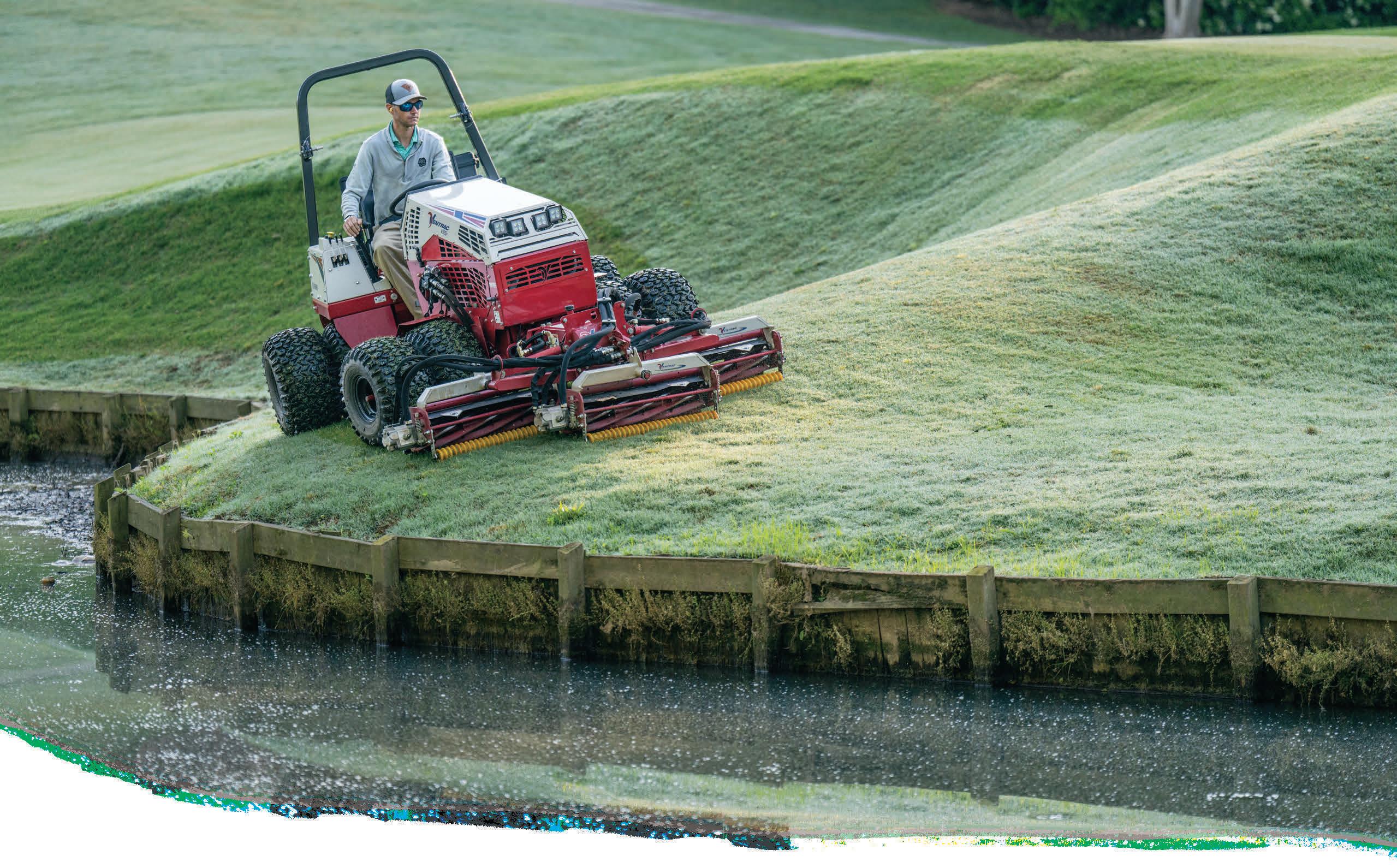

Powered by the all-wheel drive Ventrac 4520 tractor equipped with dual wheels, this reel mower can be operated on hills and slopes up to 30 degrees. Go where no other reel mower can go, and leave a beautiful cut with the Ventrac MR770 reel mower.
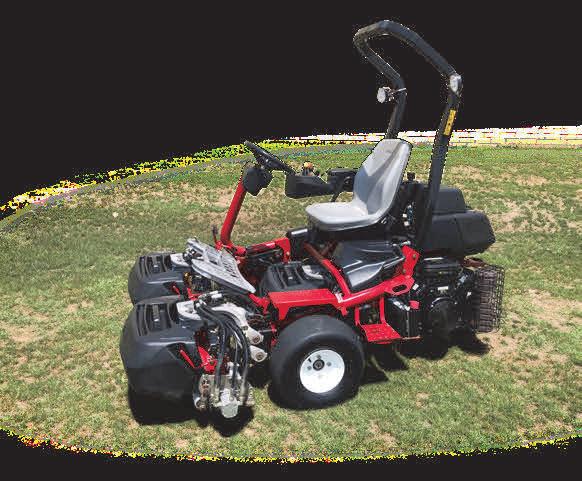
Scan here to learn more about the Ventrac MR770!



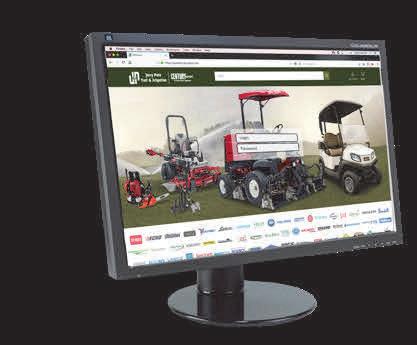


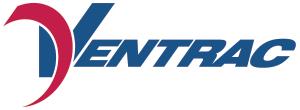

Equipment l Irrigation l Parts & Accessories l Service l Rentals
Design Louisiana Mississippi Chapter
l
Look Up Parts Via PartSmart™ - Place Parts & Accessory Orders Track Orders Online - Review Account Information Pay Invoices Online - Look Up Pricing and Availability ECOMMERCE.JERRYPATE.COM JERRYPATE.COM/PREOWNED E-COMMERCE SITE 24/7 PRE-OWNED EQUIPMENT & IRRIGATION PRODUCTS 2018 Toro Pre-owned GR3300 Triflex with 11 blade DPA Reels, Lights, Gold Certified, Warranty $34,000 800-282-4792 EXT 3204 (Pre-owned Subject to Availability) Breath new life into your irrigation system! Convert from hydraulic controls to electric. Upgrade any brand of hydraulic control system… Affordably and quickly. GOLF IRRIGATION TEAM CALL US TO LEARN HOW! 800-700-7011 Jerry Pate Turf & Irrigation www.JerryPate.com l www.CenturyEquip.com ALABAMA - ARKANSAS FLORIDA - GEORGIA INDIANA - KENTUCKY LOUISIANA - MICHIGAN MISSISSIPPI - MISSOURI OHIO - PENNSYLVANIA TENNESSEE - WEST VIRGINIA SERVING: ATLANTA 800-282-4792 BIRMINGHAM 800-348-9015 PENSACOLA 850-479-4653 CINCINNATI 513-285-1800 CLEVELAND 216-292-6911 COLUMBUS 614-771-9995 TOLEDO 419-865-7400
Your Strategy for Success


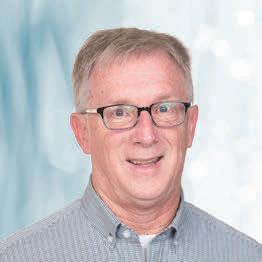
In a world where every decision matters, game-changing strategic support, unrivaled access to leading products at the best prices, extended terms and warehousing give you the edge you need to succeed.


Call your Harrell’s representative today. Syngenta, Envu, Nufarm, BASF, FMC, Corteva, SePRO, and PBI Gordon PLUS Harrell’s premium branded products – Harrell’sMAX®, Bio-MAX®, HydroMAX®, SprayMAX®, ProtectMAX® BRETT DRINKWINE bdrinkwine@harrells.com (251) 689-3288 JAMES BARTLEY jbartley@harrells.com (334) 707-5134 STEVE KUYRKENDALL skuyrkendall@harrells.com (601) 953-1847 EOP 2023 The Moves You Need to Win
www.harrells.com | 800.282.8007 Employee -Owned www.harrells.com | 800.282.8007 Employee -Owned













































































 By Barry
By Barry











 By Dr. Casey Reynolds, Executive Director TPI
By Dr. Casey Reynolds, Executive Director TPI




















 MTA President Will Arnett thanking everyone for attending. And, thanking Tim Basel & staff, MSU Superintendent Jimmy McPherson and MSU Assistant Superintendent Jake Sorrells for doing such a great job of hosting.
MTA President Will Arnett thanking everyone for attending. And, thanking Tim Basel & staff, MSU Superintendent Jimmy McPherson and MSU Assistant Superintendent Jake Sorrells for doing such a great job of hosting.





























